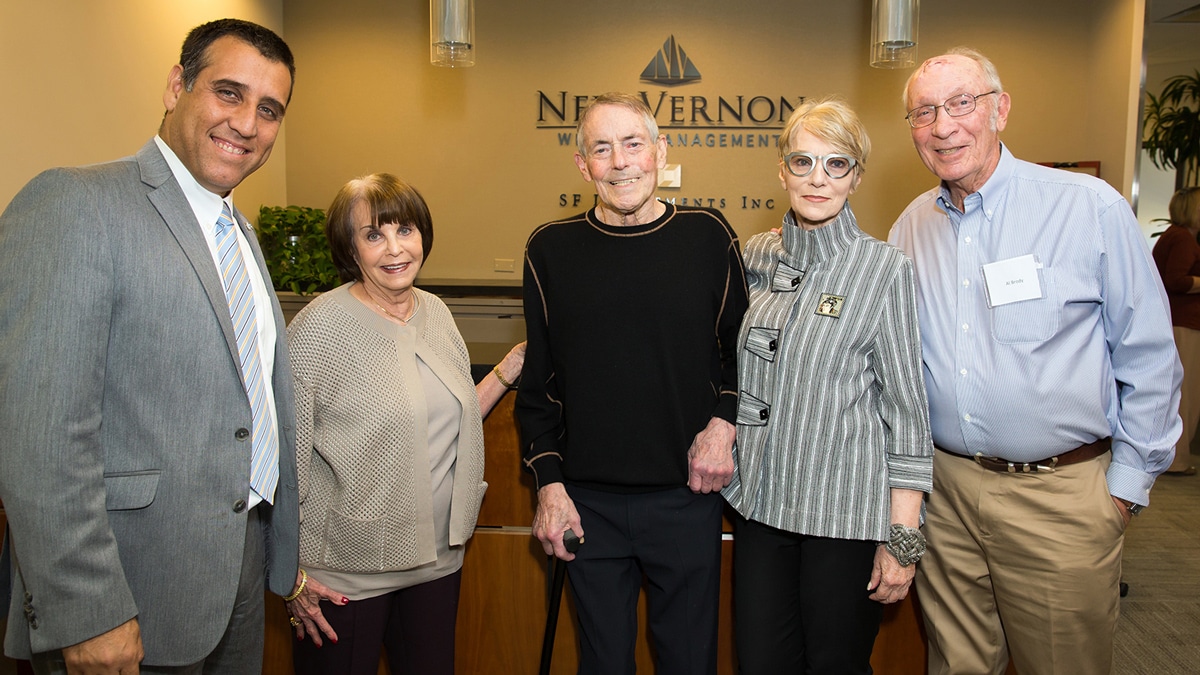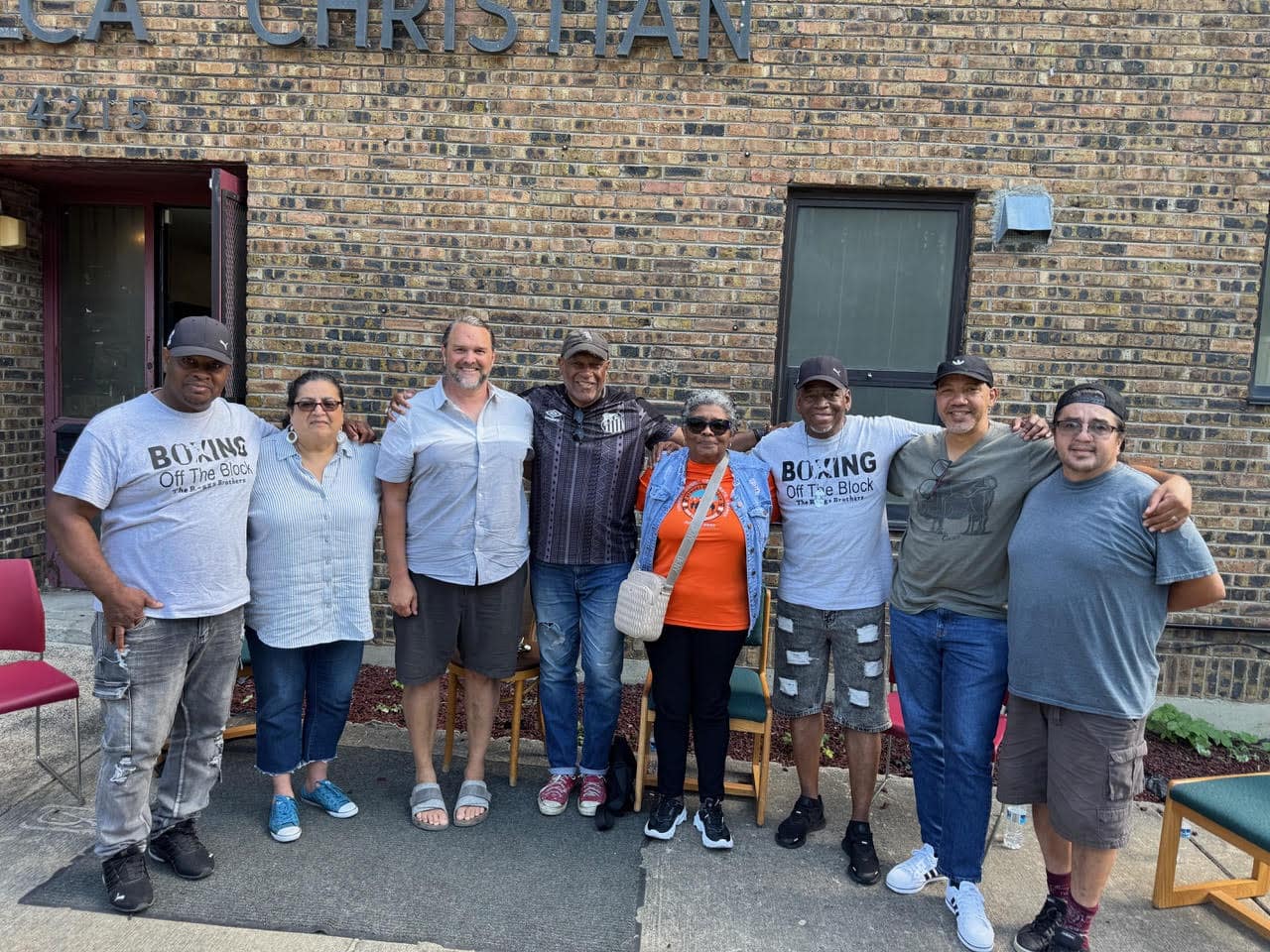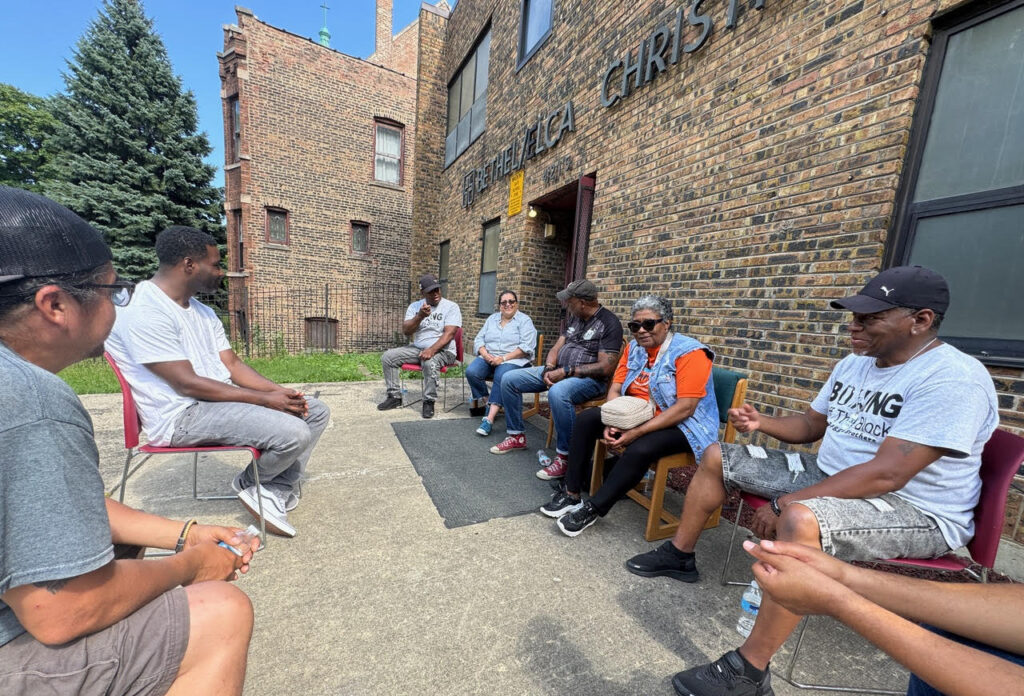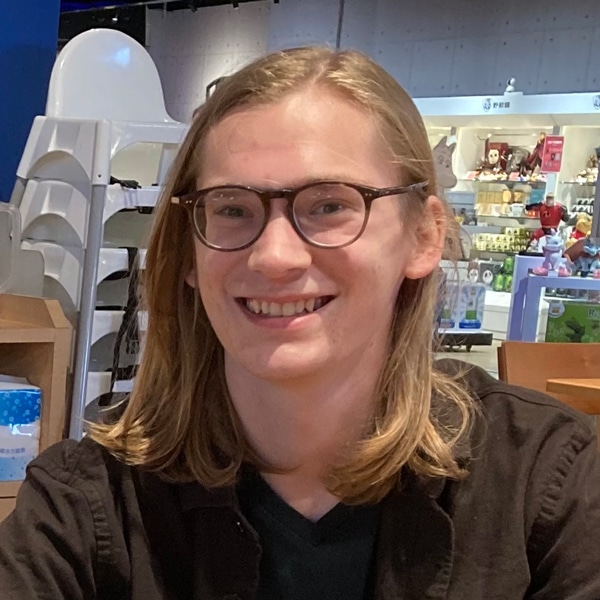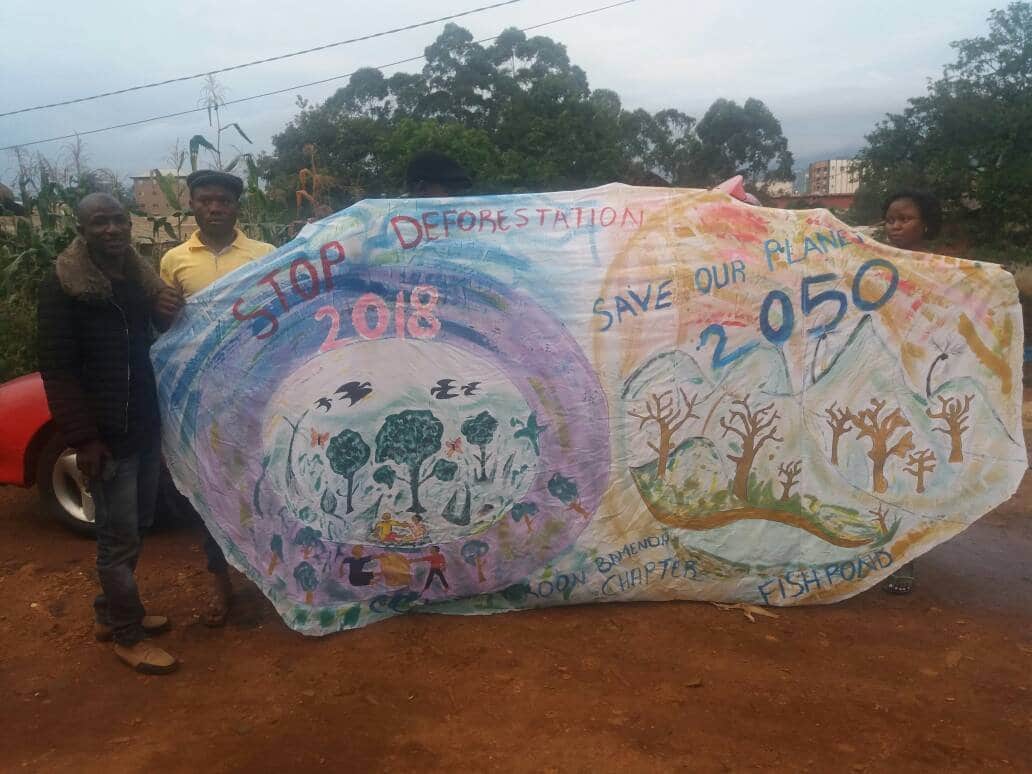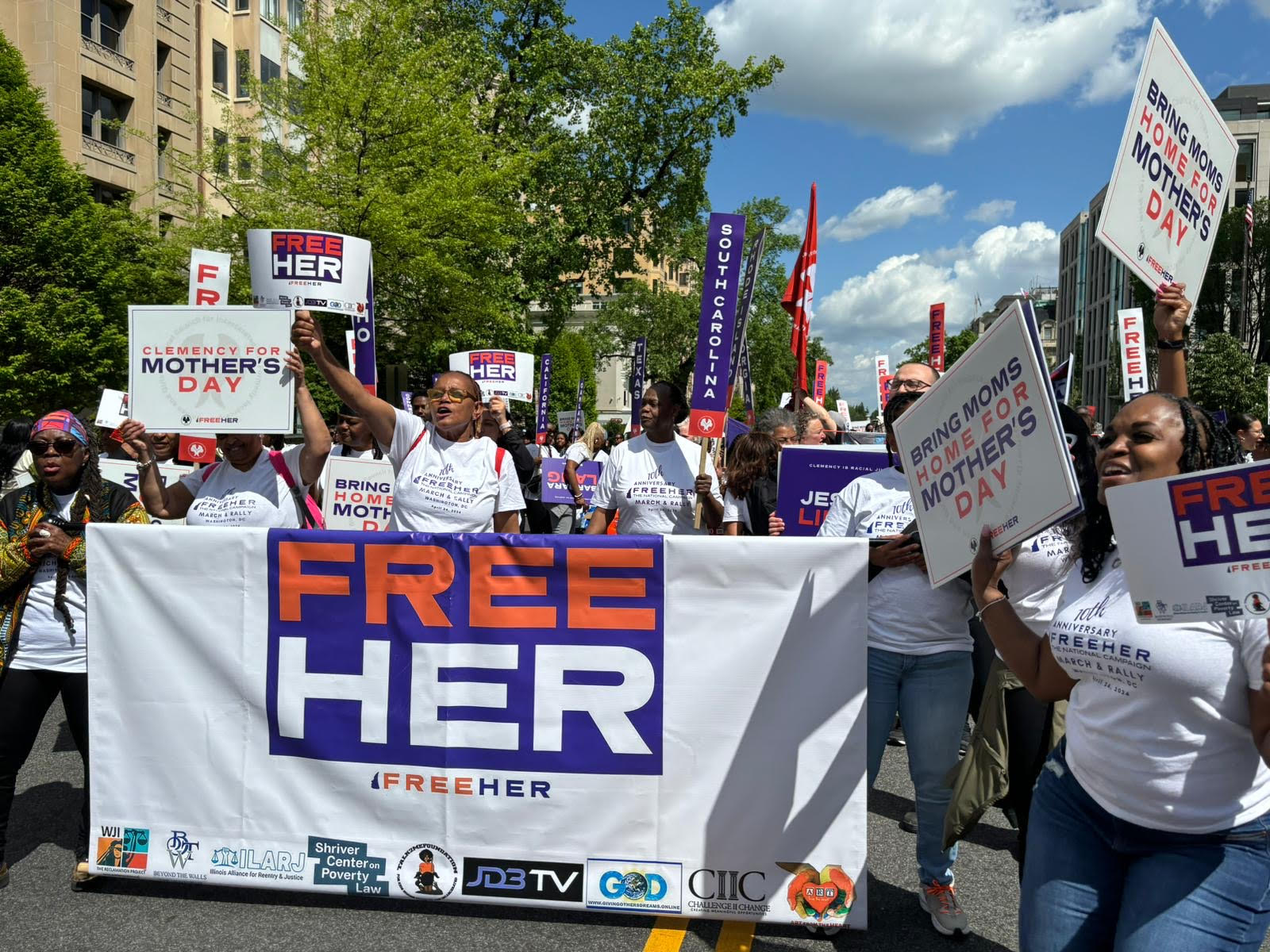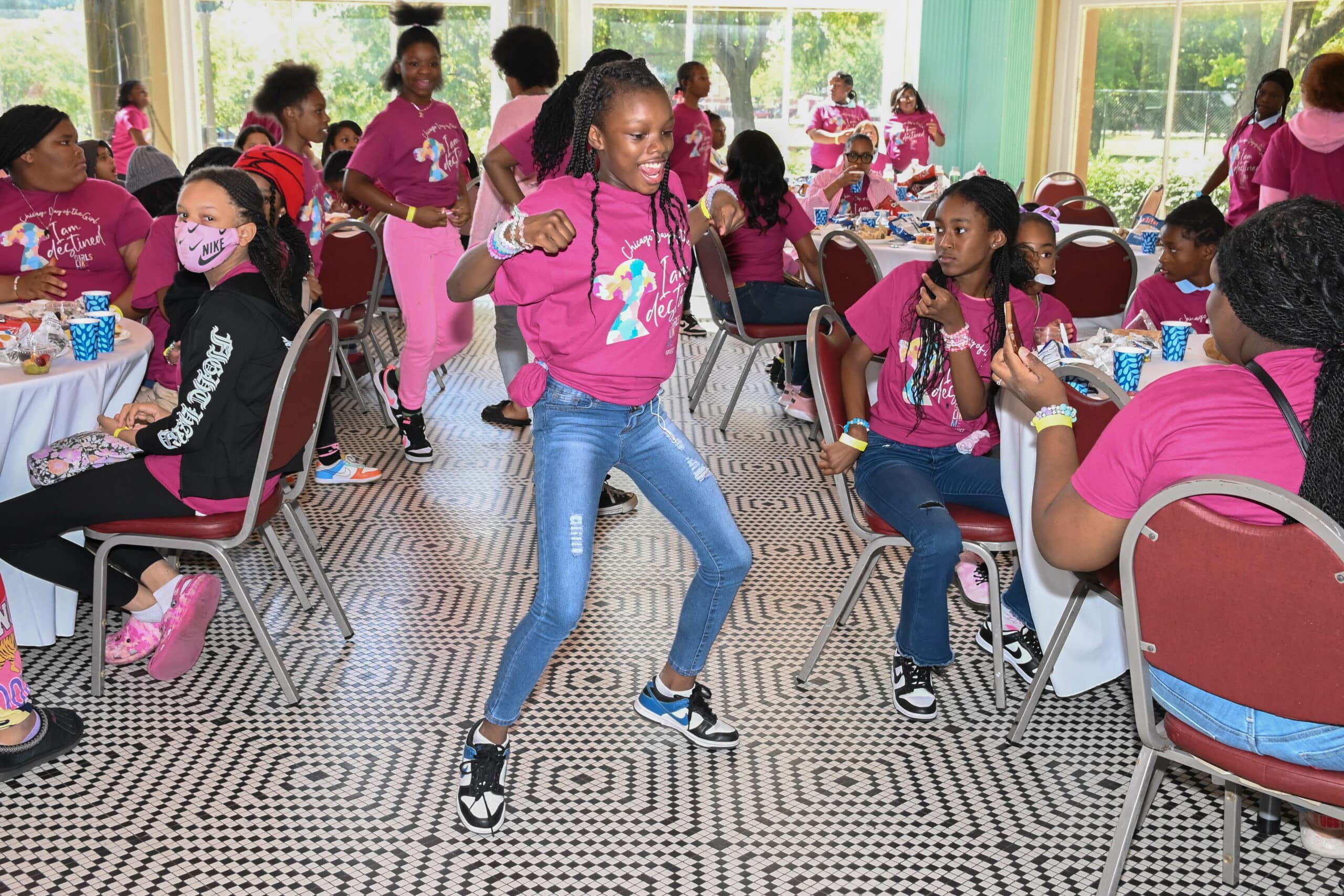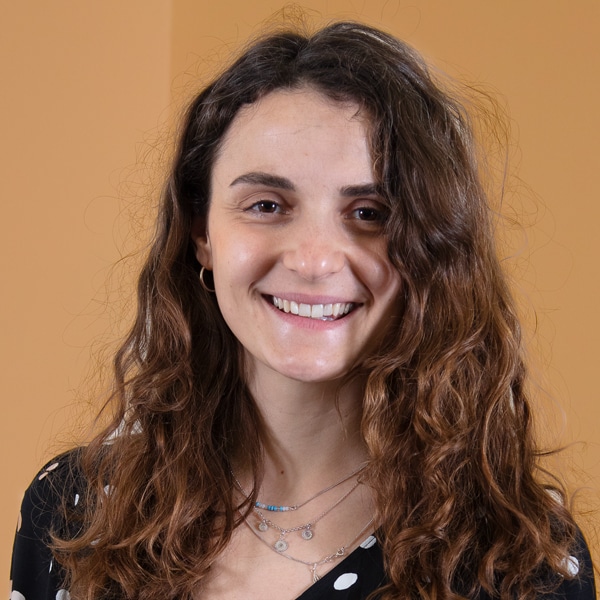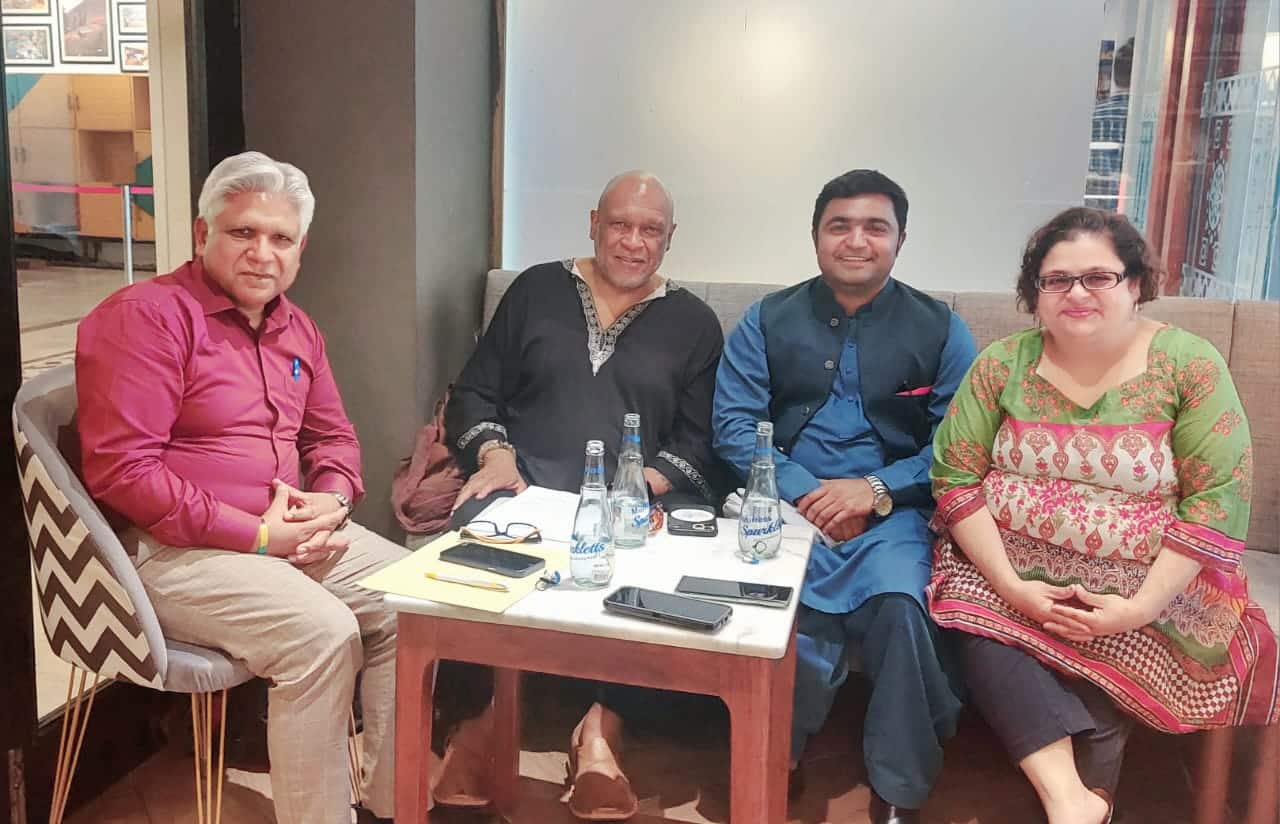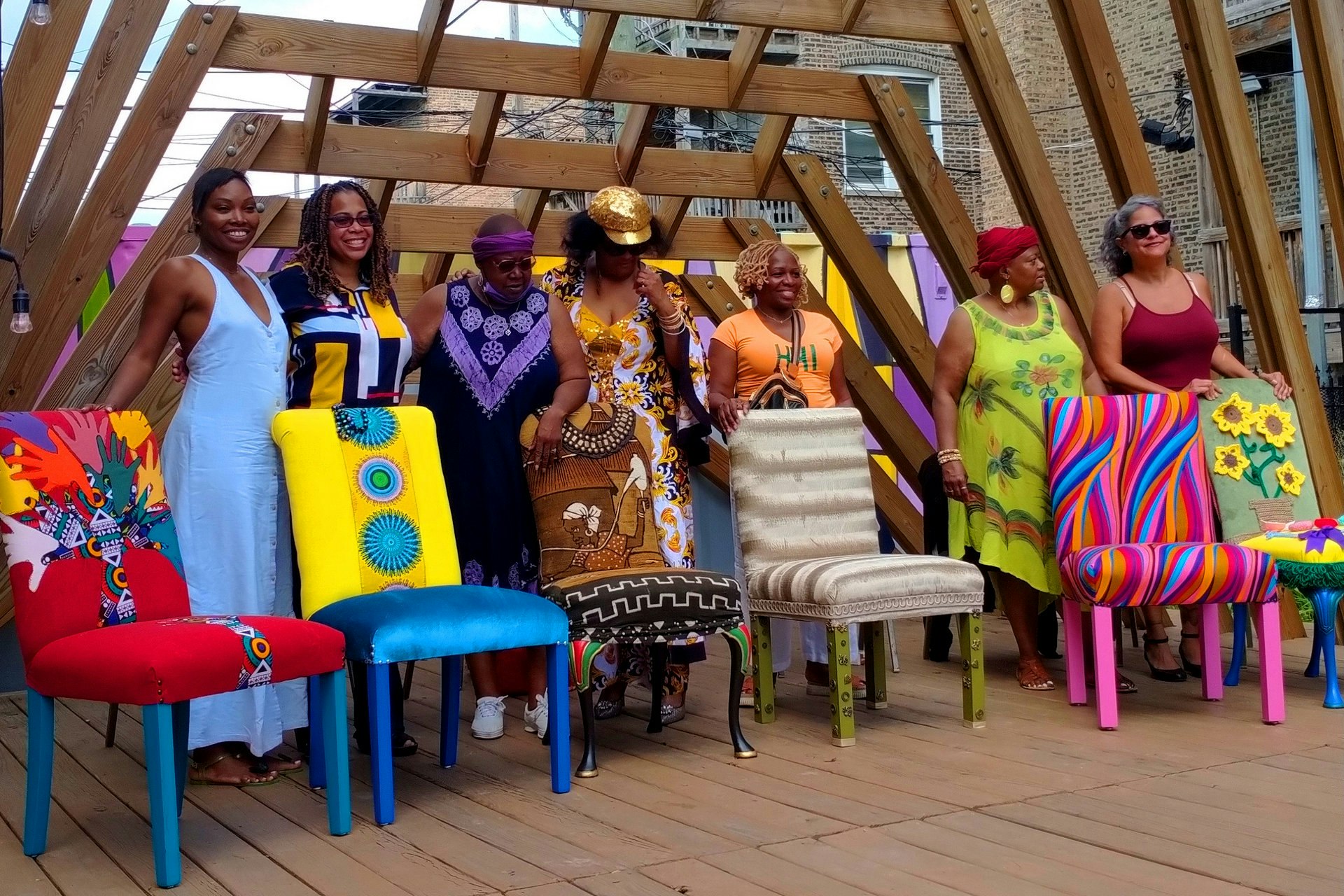Remembering Nathan Shapiro
The Goldin Institute mourns the loss of longtime board member and trusted advisor Nathan ‘Nate’ Shapiro. On behalf of the entire Board and staff, we send our deepest condolences to his family and loved ones. Nate was a close friend of Diane Goldin, Founder of the Goldin Institute, and her late husband, Morton “Moe” Goldin.
In 1972, Nate Shapiro launched SF Investments, and rapidly made it a highly successful brokerage firm. Within a few years, he became the single largest shareholder of Baldwin & Lyons, Inc., a publicly traded property/casualty insurance company. He served on the Board of Trustees of the ABN AMRO mutual funds and as a trustee for Alleghany Funds, a family of mutual funds sponsored by Chicago Trust Company.
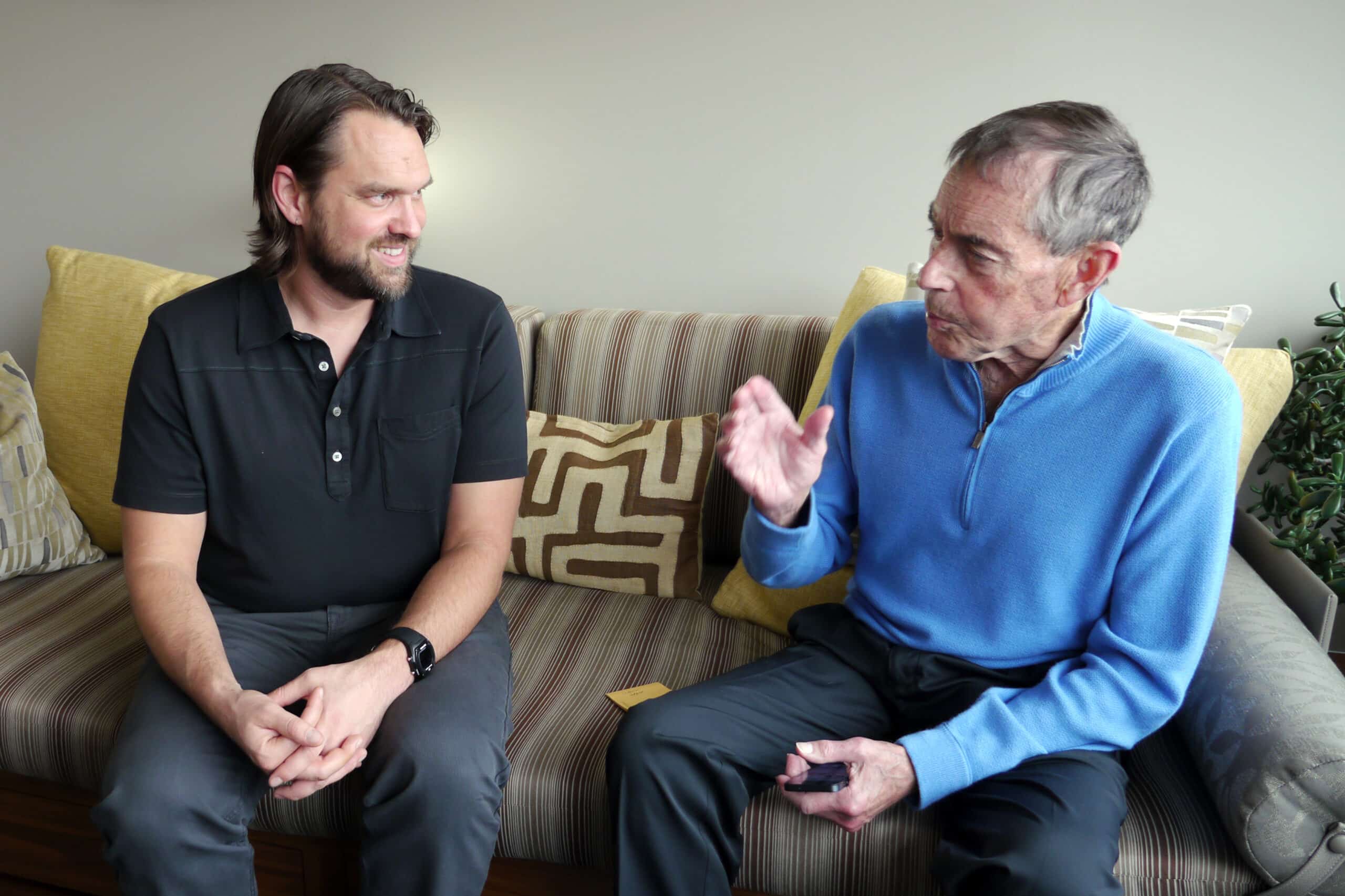
Nate was dedicated to many philanthropic endeavors, especially with Ethiopian Jews, a cause in which Diane and Moe Goldin were close collaborators. As President of the American Association for Ethiopian Jews (AAEJ) from 1983-1993, the organization provided relief, advocacy and rescue at a time the Ethiopian Jewish community was menaced by dire threats in Ethiopia as well as Sudan, where many had fled. Through diplomacy, pressure and intense organizing, Nate facilitated the successful immigration of nearly the entire Ethiopian Jewish community – tens of thousands of people – to Israel through operations Moses, Joshua and Solomon. He continued to support the Ethiopian Jews in Israel generously as the community faced discrimination to become a vibrant and outspoken component of Israeli society. Nate was honored for his efforts by the Consul General of Israel to the Midwest and by the Friends of the IDF in 2017.
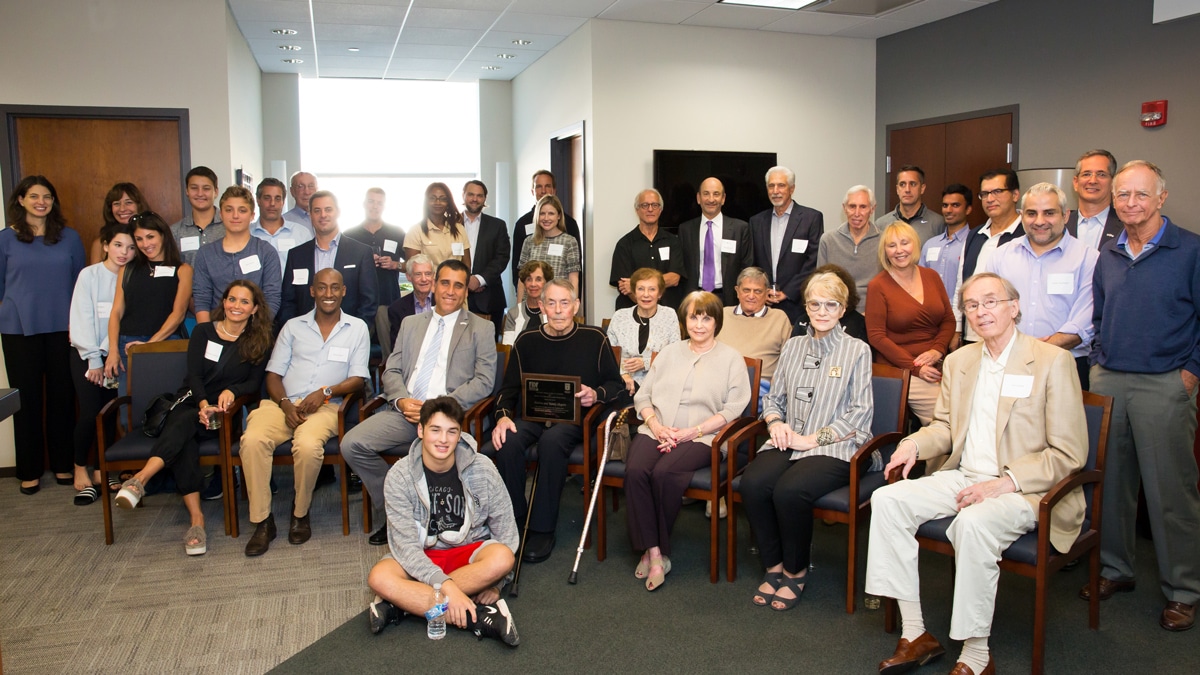
In addition to his work with Ethiopian Jews, Nate participated in many Goldin Institute initiatives over the years. In 2021, Nate was a benefactor for an initiative working with local community leaders in Philippines to deliver badly needed supplies in the aftermath of Typhoon Odette.
Nate is survived by Randy (nee Luster) Shapiro, his wife for 62 years; children Steve (Leslie) Shapiro, Danny (Anne) Shapiro, and Lesley (Nate) Stillman; grandchildren Joey, Tony, Jack, Jayson, Jordyn, Emily, Sam, Nick, Noah, Payton, Addison, and Samantha; great grandchildren Tatum and Riley. Nate also is survived by his brother Robert (late Gwen) Shapiro. His brother Norton Shapiro, and Norton’s wife Barbara preceded him.
Chicago Imbizo
I met John Zeigler, Goldin Institute Senior Director of Programs, three years ago, on a hilltop in Ophondweni, a remote rural village in KwaZulu Natal, South Africa. DeAmon Harges from The Learning Tree, Indianapolis, and a close brother for 16 years, said I simply had to talk to him. I had to drive to the top of a hill to get a signal to make the call.
Sawubona ZA had just started working with the community of Ophondweni, and we had absolutely no clue as to what we were doing.
In the relatively short time that I have known John, he has become a friend and a mentor and I couldn’t imagine walking this path without him. John introduced me to The Goldin Institute - a life-changing experience! He has been to Ophondweni – a place most South Africans have not heard of. We had the privilege of touring South Africa together, and we recently got to spend some time together in the U.S.
Sawubona walks alongside Ophondweni on a healing journey. We understand that love without works is dead, and so our walk involves food security and economic and infrastructure development. And we approach this work by making the invisible, visible. Making Ophondweni visible and through visibility attracting interest and investment to a desperately underresourced community.
John and I were the first to arrive at Boxing Off the Block, in Chicago where they encourage good habits in young people and provide a space in which they can feel safe and have positive role models in an area where gun violence is a serious problem. Tony’s brother, Gregory Raggs, graciously showed us around the gym. Gregory shared a powerful insight that resonated with me: they teach young people that the real fight happens outside the ring- often with oneself.
Inside the ring, it’s about boxing, not fighting.
-- Gregory Raggs
We decided to take advantage of the good weather, setting up chairs outside as we awaited the arrival of others. As more Fellows arrived, additional chairs were brought out, and soon we found ourselves seated in a circle, reminiscent of a backyard gathering.
I had the pleasure of meeting Travis Rejman, Goldin Institute Executive Director, and Chicago Peace Fellows, Sylvia, Guillermo, and Tony, whom I’d only known through the Goldin platform or virtually, and some friends and family who joined us for the gathering. The faces were familiar, recognizable from online profiles and brief calls - virtual strangers, yet a hairsbreadth away from being family, connected by a Goldin thread.
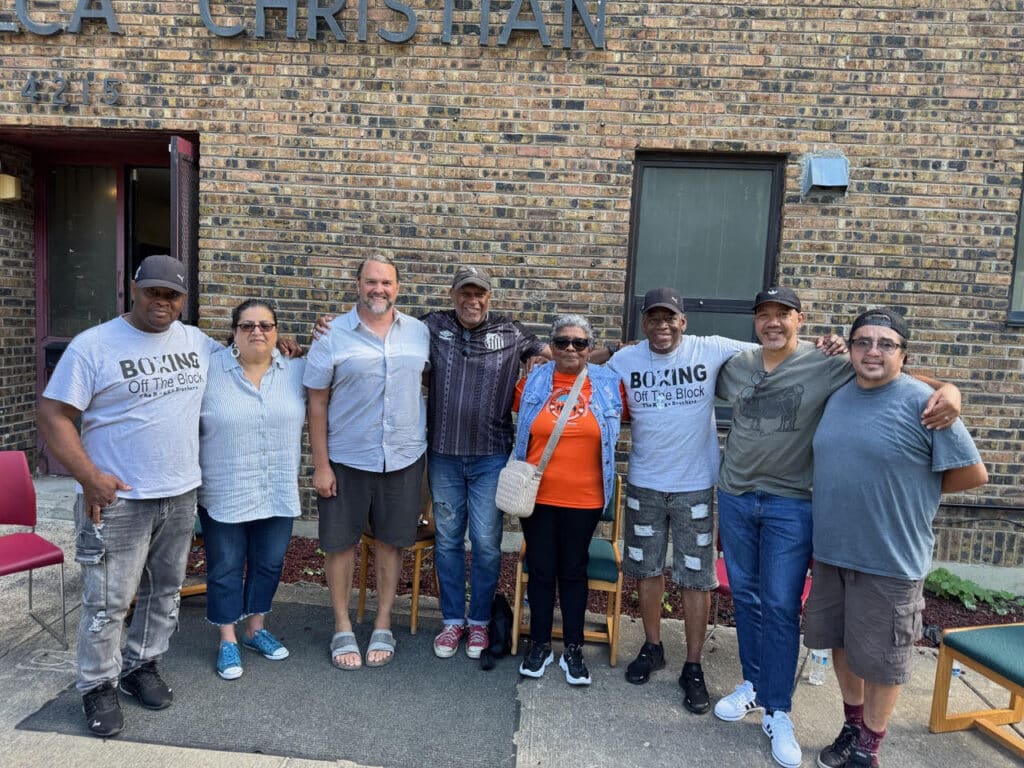
After brief introductions, including Guillermo’s thoughtful insistence on the correct pronunciation of his name, we shared insights about our work and, more importantly, the motivations behind it. Our shared mission is about healing—healing our communities, which is intrinsically tied to our own healing. We are all, in essence, wounded healers.
Surprisingly, we quickly became comfortable sharing personal stories. It’s remarkable how the urgency of our work fosters intimacy, allowing us to be vulnerable with one another.
The significance of our endeavors is profound and pressing. We are called to this work; it has chosen us. While there is little glory in our efforts, the rewards are immeasurable.
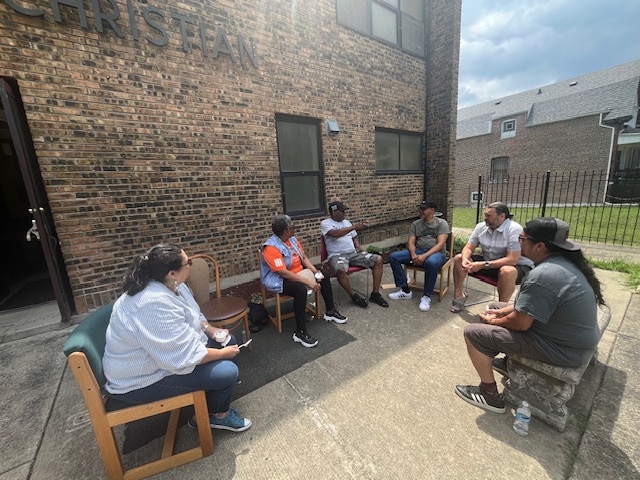
Chicago and the U.S. present a different landscape compared to Ophondweni and South Africa. Yet, this is merely a veneer. Beneath the surface, we grapple with the same struggles. Our conversations illuminated our shared humanity, revealing that what binds us is far greater than what divides us. I perceive the systemic infliction of suffering, yet the reasons behind it elude me.
Could this relentless cycle stem from fear? If so, the answer lies not in fighting, but in love. Perhaps we should all step into the metaphorical boxing ring. We must wrestle with our differences, but always with love and respect.
The Goldin Institute serves as our boxing gym, where we train not to fight, but to heal.
*Imbizo is a term from South Africa that generally means a gathering or meeting, often convened to discuss issues affecting a community. It describes a dialogue between community members, leaders, and stakeholders to foster understanding and collaboration toward empowering communities.
Combating Hunger Amidst the Anglophone Crisis
Life in northern Cameroon, including my town Bamenda, has been marred with violent conflicts leading to increasing social and economic challenges. Human rights are violated, the economy disrupted, and infrastructure, education, and healthcare services have been strained by the ongoing political conflicts. Since 2016 our communities in the Northwest and Southwest have been affected by the ongoing Anglophone Crisis which results in difficult living conditions for people. Our city, Bamenda, is at the heart of this conflict area.
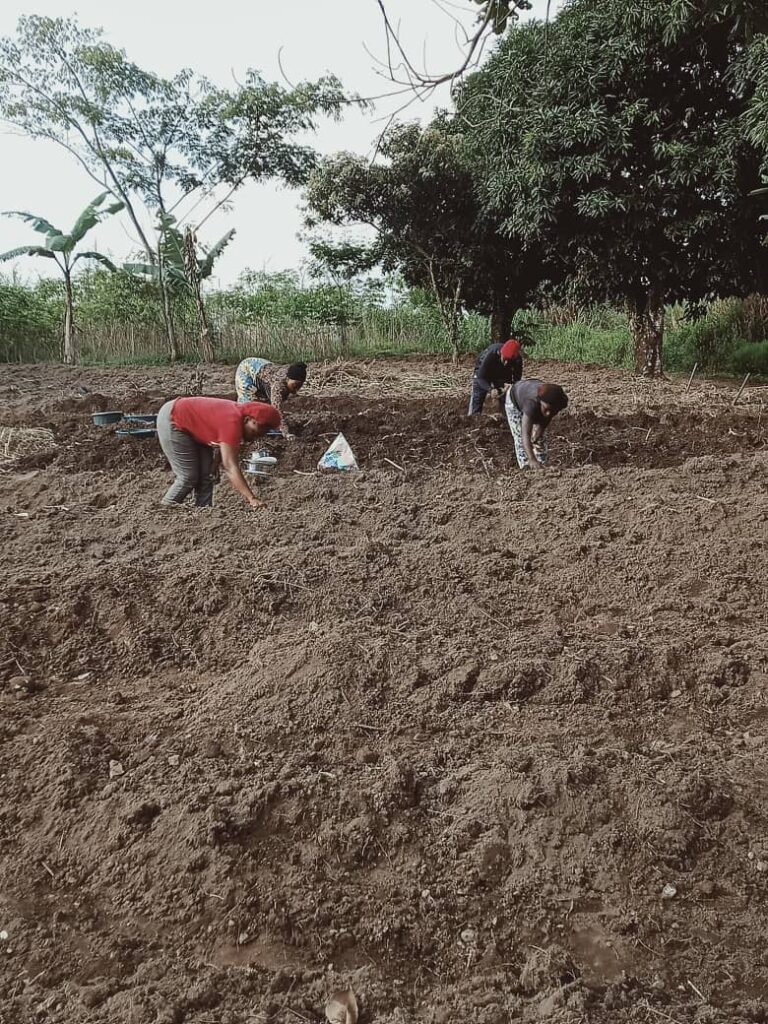
Tackling Hunger with Asset Based Community Development
In my role as the president of the Community Green Engagement initiative, I work with neighbors in my community to tackle one of the major issues communities face during these challenging times—hunger and poverty. Informed by my experience from the Gather course, I am applying what I learned about the Asset Based Community Development approach to find solutions for our problems. While most social services are strained, we still have land and strong community cohesion as our greatest assets. With that, we are working on sustaining ourselves by growing food and helping Internally Displaced Persons (IDPs ) with farms to grow food.
In our new initiative, we are providing maize seedlings and farms to Internally Displaced Women to grow food and potentially sell any extra crops for income. Thanks to our generous friends in the Goldin Institute Network, we have secured cassava seedlings and three groups of 21 marginalized women are now involved in the project. They have planted 800 seedlings in three different farms. While growing cassava seedlings takes time, nearly a year before harvest, it will go a long way in our future plans to save and multiply the seedlings and continue to support more IDPs.
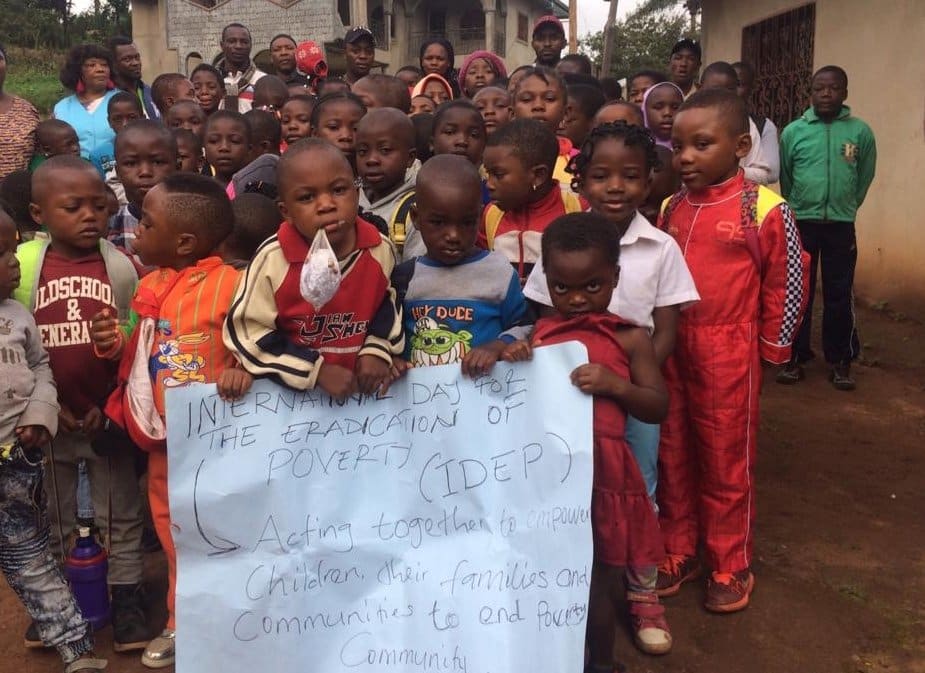
The women involved in this new initiative have been sending messages of appreciation to us and our friends in the Goldin Institute network for support. Below are some messages from them:
I would like to appreciate and thank Goldin Institute Chicago so much and especially Maxwell for this wonderful initiative. We are very grateful for the cassava hybrid seedlings. — Melanie Swirri, Chomba Women farming group, Cameroon.
I'm very happy with Goldin Institute Chicago for the cassava seedlings. I will use the cassava from the seedlings to produce Garri for sale and use the money to pay my children's school fees — Winifred Abia, Chomba Women Farming group, Cameroon.
Advocating for an End to Solitary Confinement
When the Solitary Confinement Reform Act was introduced in the United States Senate on June 16, 2024, Nicole Davis appeared to give testimony. Nicole, a 2021 Chicago Peace Fellow and the Executive Director of the Talk2Me Foundation, has lived experience being incarcerated in Federal prison and in solitary confinement. As someone who has been directly impacted by the justice system, she knows firsthand how the system often discriminates against women and advocates for dignity, decriminalization, decarceration and to end harm to women and girls. Her recent trip to the Senate was preceded by her involvement in the 10th anniversary of the FreeHer March and Rally, an event aiming to end the incarceration of women and girls and shift resources into communities.
Marching for Clemency to be Granted to Incarcerated Women
The FreeHer March is a call for Federal and State officials across the country to grant clemency to incarcerated women and mothers. The campaign highlights that “80% of women in jails and 56% of women in prison are mothers to children under the age of 18. Most of these women are the primary caretakers of their families, women of color, and most of the mothers in jail are awaiting trial simply because they can’t afford bail.” As such the FreeHer March advocates not only for criminal justice reform, but also for womens’ rights, racial justice, and economic justice. By freeing mothers to return to their homes and ending the incarceration of women and children, more resources could be directed towards their communities rather than jails and prisons.
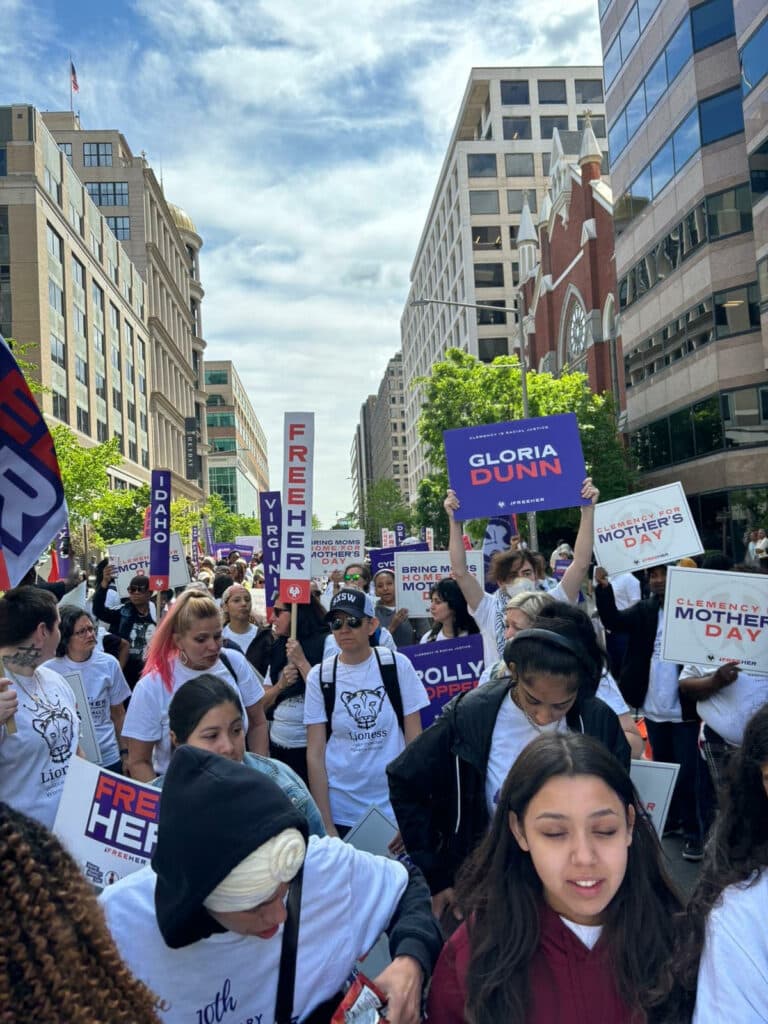
This year, the FreeHer March was attended by people across the United States and specifically highlighted the voices of those with lived experience. Nicole noted, “We wanted 50 states to participate so we asked all of our allies to participate in raising money to bring women from their states to D.C. so that they can hear our voices.” The Talk2Me Foundation worked alongside the Illinois Justice Project, Giving Others Dreams, Challenge II Change, and the Illinois Alliance for Reentry and Justice to raise funds and organize a trip that brought 77 women with lived experience to Washington D.C. for a day.
One talking point of the FreeHer Campaign is the underutilization of the presidential power of clemency as a tool for racial justice. They highlight that under the Obama Administration, 1,715 acts of clemency were issued, signaling a strong stance of racial justice. In contrast, President Biden has only issued 13 acts of clemency. As someone who appeared before President Biden prior to his election and lobbied for 100 women to be granted clemency, Nicole is disappointed in his lack of action: “President Biden said that in his first hundred days of office he would release 100 women, which did not happen. He released 13 incarcerated people, three women and ten men, but no one on our list. That’s why we were back there, to ask the president to stand on his word.” In demanding President Biden uphold his promise to issue clemency, the FreeHer campaign is calling not only for restorative action, but also for Biden to uphold his campaign promises and to be held accountable.
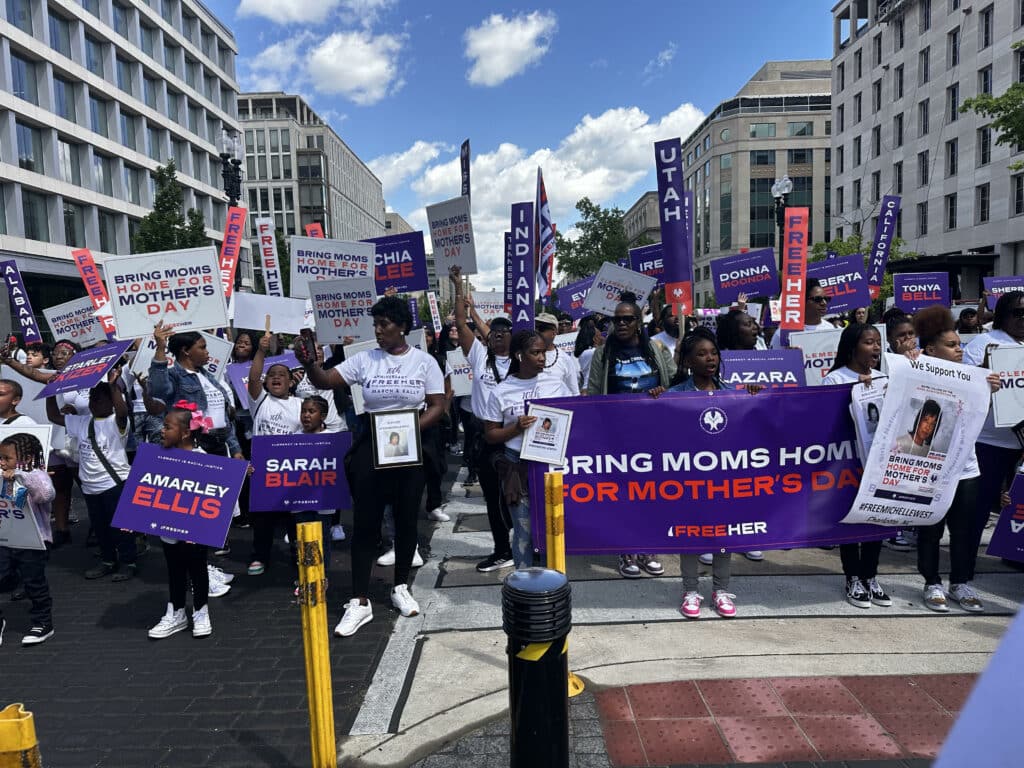
Testifying Before Congress on the Solitary Confinement Reform Act
As someone with lived experience, Nicole was also asked to appear before the U.S. Senate Committee on the Judiciary when the Solitary Confinement Reform Act was introduced on June 16. The bill was introduced by Senator Dick Durbin and Senator Chris Coons and “limits solitary confinement to the briefest term and under the least restrictive conditions possible because the overuse of solitary confinement threatens public safety, strains prison budgets, and violates fundamental human rights.” When the legislators behind the bill solicited testimonies from women with lived experience of solitary confinement, Nicole added her name to the list: “People with lived experience are having an opportunity not to have a seat at the table to discuss these bills because we are the closest people to what took place. They cannot sit and create these policies and bills without someone with lived experience being there.”
At the hearing, Nicole advocated for alternative programs to solitary confinement and emphasized that solitary confinement causes harm rather than improving health and safety. Speaking to her motivation to end the practice she says, “We need to end solitary confinement all around, no matter what a person’s charge may be. It’s devastating, it’s horrifying, it’s harm, you’re constantly inflicting harm on an individual and it’s wrong. You need to find alternative programs, you can not constantly just throw people in a 6’x9’ cage, it’s inhumane.”
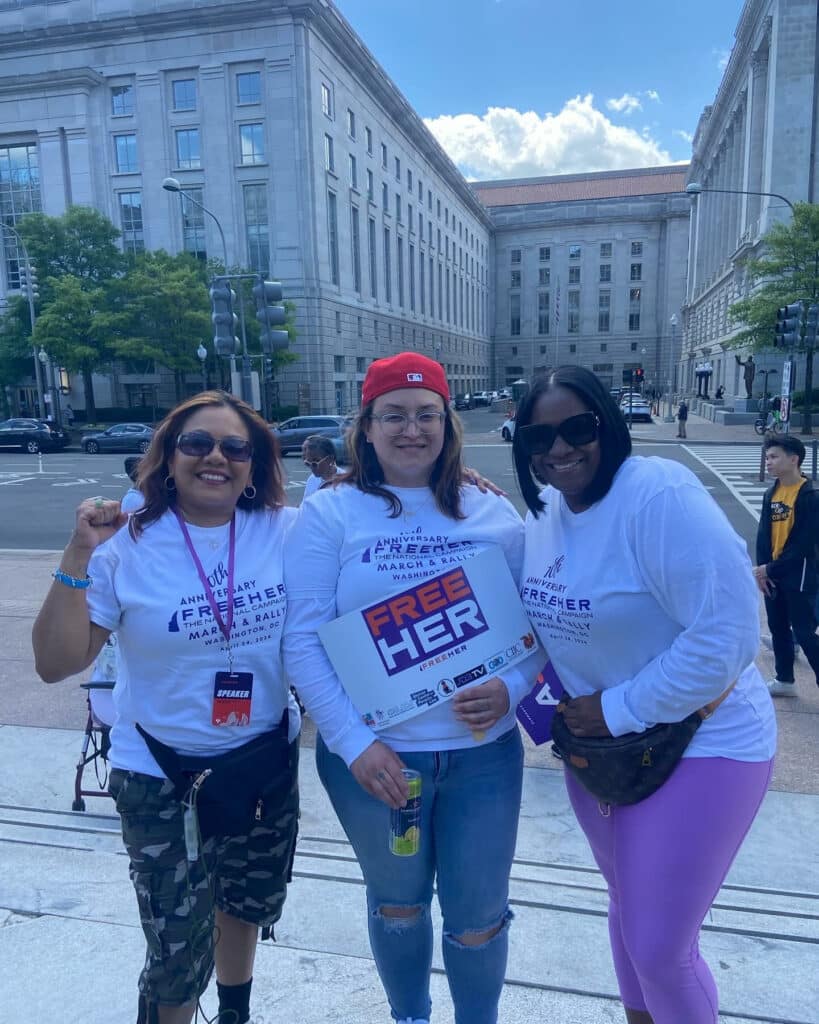
Nicole thinks that the FreeHer March and her testimony before Congress mark a change in how political systems are responding to womens’ rights and prison reform. Reflecting on the moment she notes, “Everyday is a struggle and I think they are hearing us now and listening. They are finally listening and they are listening to women. We have been left out for so long, it was all about men. So I think the route that we are going, and that we’re not giving up, I think that we’re restoring what we’ve been wanting for decades and decades.”
In the future, Nicole hopes to focus on creating more reentry programs for women. She notes how housing in particular is an important issue: “One big issue we have is housing for women who are coming home…I’ve been trying to raise funds to give the community the resources they need.” You can keep up with the work of the Talk2Me Foundation and Nicole Davis on their Facebook page and website.
Girls Like Me Project Promotes Connectivity and Self-Worth
La’Keisha Gray-Sewell, Founder & Executive Director, of the Girls Like Me Project, and 2020 Chicago Peace Fellow speaks about her inspiration to start this initiative, how it evolved since its inception, and how reimagining the way the community is measured is important for Black girls' wellbeing and prosperity.
She is dedicated to empowering Black girls and helping them identify and critically examine the cultural, environmental, and media messages that influence their development, including negative stereotypes or gendered racism. Through different programs, her organization equips these girls with the tools and strategies to become influential, independent digital storytellers who transform their communities and foster global sisterhood.
In this interview with Goldin Insitute, La’Keisha dwells on her mission to guide Black girls participating in their programs in discovering their self-worth by dismantling stereotypes and negative media messages.
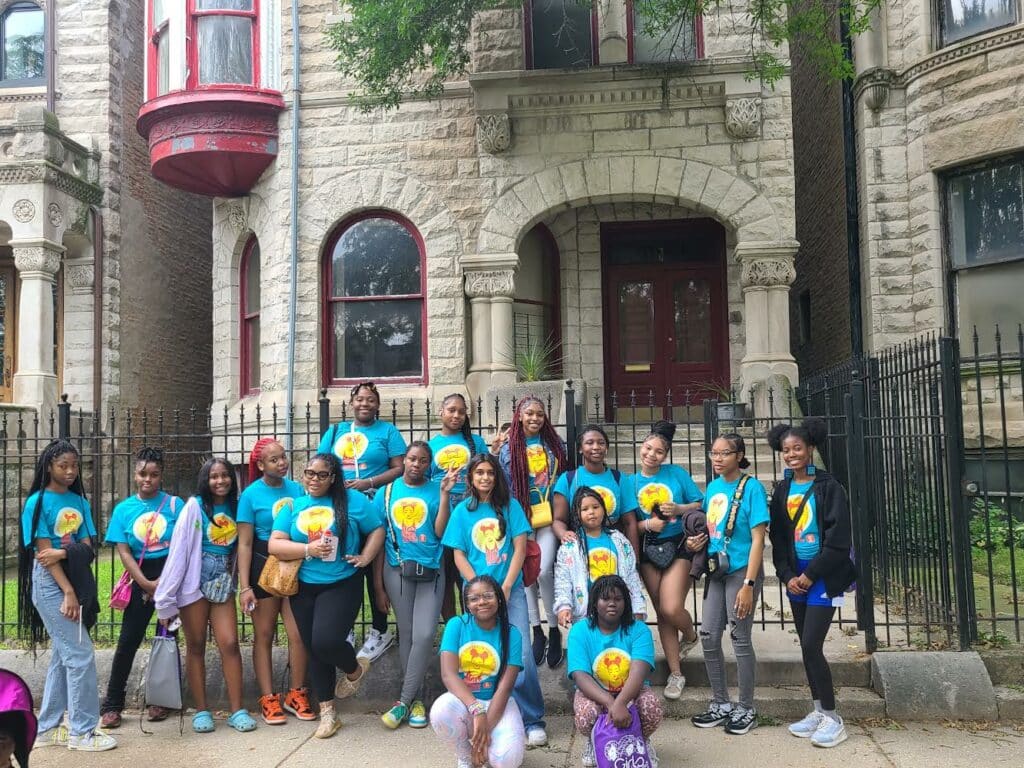
Girls Like Me Project Empowers Black Girls
Behavioral issues in her son’s classroom inspired her to start the organization, which under her leadership has served more than 700 girls through its transformative programs and events. “That initial impetus was also fueled by a desire to uncover the voices of the positive and ambitious girls who are otherwise stunted by urban plight and poverty. Over time, that vision evolved beyond “proving” to others the intrinsic value of those girls, and instead directly guide them to discover their self-worth by dismantling stereotypes and negative media messages that speak otherwise.” she says. La’Keisha highlights that in these times “the vision is expanding to design and test research-based interventions, and also use storytelling as a tool for advocacy and policy change.”
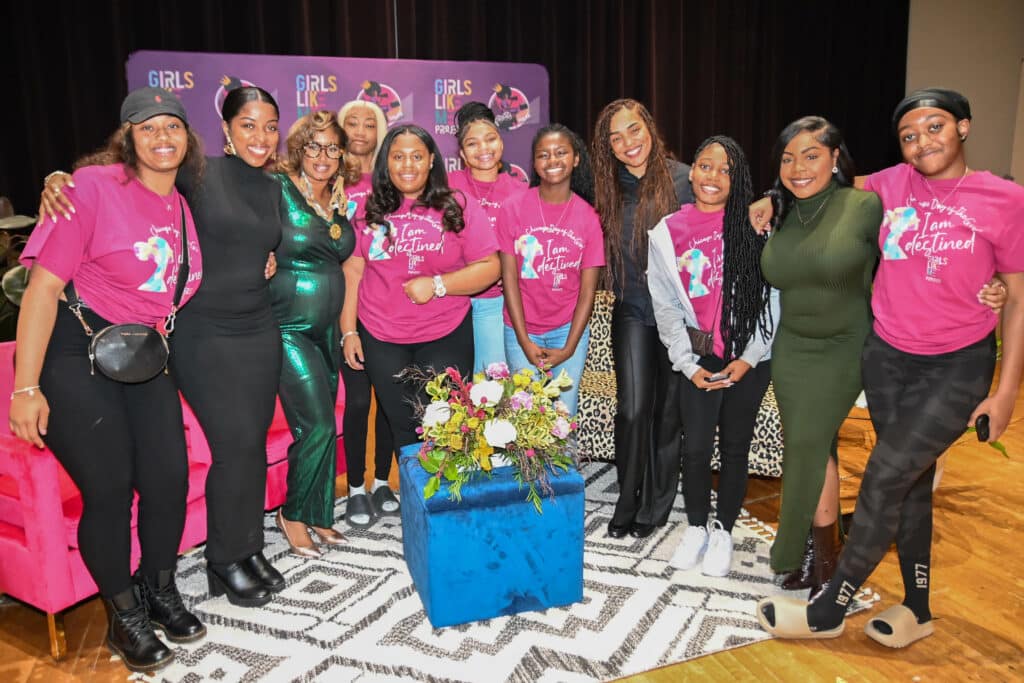
Girls Like Me Project Reimagining What Liberation Means to Them
Community initiatives, such as this one, have to measure their impact on the wider community, so they can better understand and address their needs. For measuring the impact of her organization, La’Keisha brings a unique and meaningful perspective to the table. Initially, she draws our attention to the fact that for too long, metrics of impact have been set by systems that oppress and harm Black girls. “Nonetheless, the Girls Like Me Project rejects those measures and reimagines what liberated Black girls look like, how they act, and how they relate." Beyond counting how many girls they reach at the Girls Like Me Project, they value changed behavior and their outlook of mental and physical safety as well as connectivity to social supports and resources that empower them to thrive. “We measure behavior modification and retention; how long a girl stays with our program and referrals from the girls we serve, parents, and community members.”
For Black people to become leaders and change-makers in their communities, she shares her words of wisdom. “My advice to young Black people who aspire to be leaders and change-makers is to honor yourself. Truly lean into your uniqueness, do not tuck yourself in or code switch. Honor your voice and your experience as the standard.” Then lead from there, she concludes.
Support the Girls Like Me Project by donating, volunteering, and getting involved.
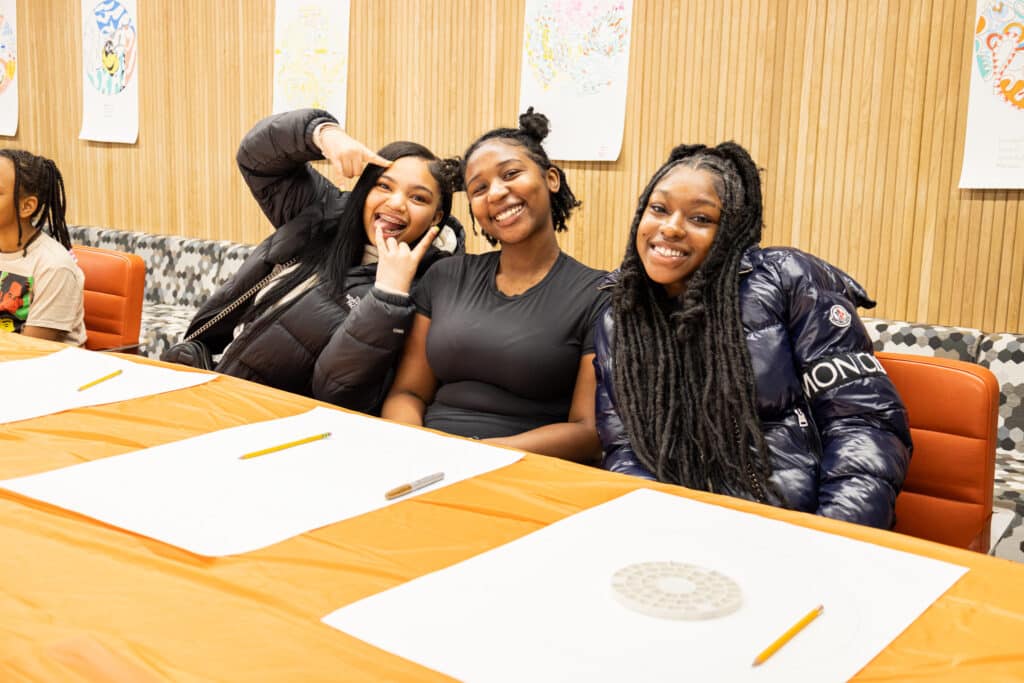
About La’Keisha:
La'Keisha Gray-Sewell is a new media relations and strategic communications consultant by trade, and a girl's advocate by life assignment. An internationally recognized urban girls advocate, a media literacy expert, and speaker, La'Keisha founded Girls Like Me Project Inc. to train girls in media literacy and empower them to navigate beyond negative media stereotypes to become global legacy builders. Under her leadership, the Girls Like Me Project has served more than 700 girls through its transformative programs and events.
In addition to her advocacy work, La’Keisha is a published author, having released her memoir and empowerment book, Move Beyond the Block, in 2018. She also hosts Move Beyond The Block TV show and podcast, aiming to uplift unheard voices and stories.
For more, check her Goldin Institute profile.
Green Urban Development in Pakistan
On May 2024, Faisal Ilyas, Executive Director of Peace Hope Pakistan and 2024 Goldin Global Fellow met with John Zeigler, Senior Director of Program at Goldin Institute to discuss intersections between their work in green urban development and asset-based community development. The two spoke about guiding the connections between the Chicago and Global teams of the Goldin Institute.
Accompanied by adjunct faculty at DePaul University, Hiba Zakai, they initially met and discussed the insights of Local and Global Peace Fellows and the impactful work Goldin Institute is doing worldwide. "We were together on the call when all the Chicago and Global fellows were online, it was a great experience. Thank you so much Goldin Institute for such an inspiring experience.” says Faisal. "I had the privilege to travel to Islamabad and accompany the participants in the Green Urban Development (GUD) initiative on a learning journey that allowed me to witness the creativity and urgency in addressing issues of green urban development in Pakistan.” says John. He further says that Faisal allowed him to understand the power of humanity which, according to John is the main movement builder that helps to lift this GUD process.
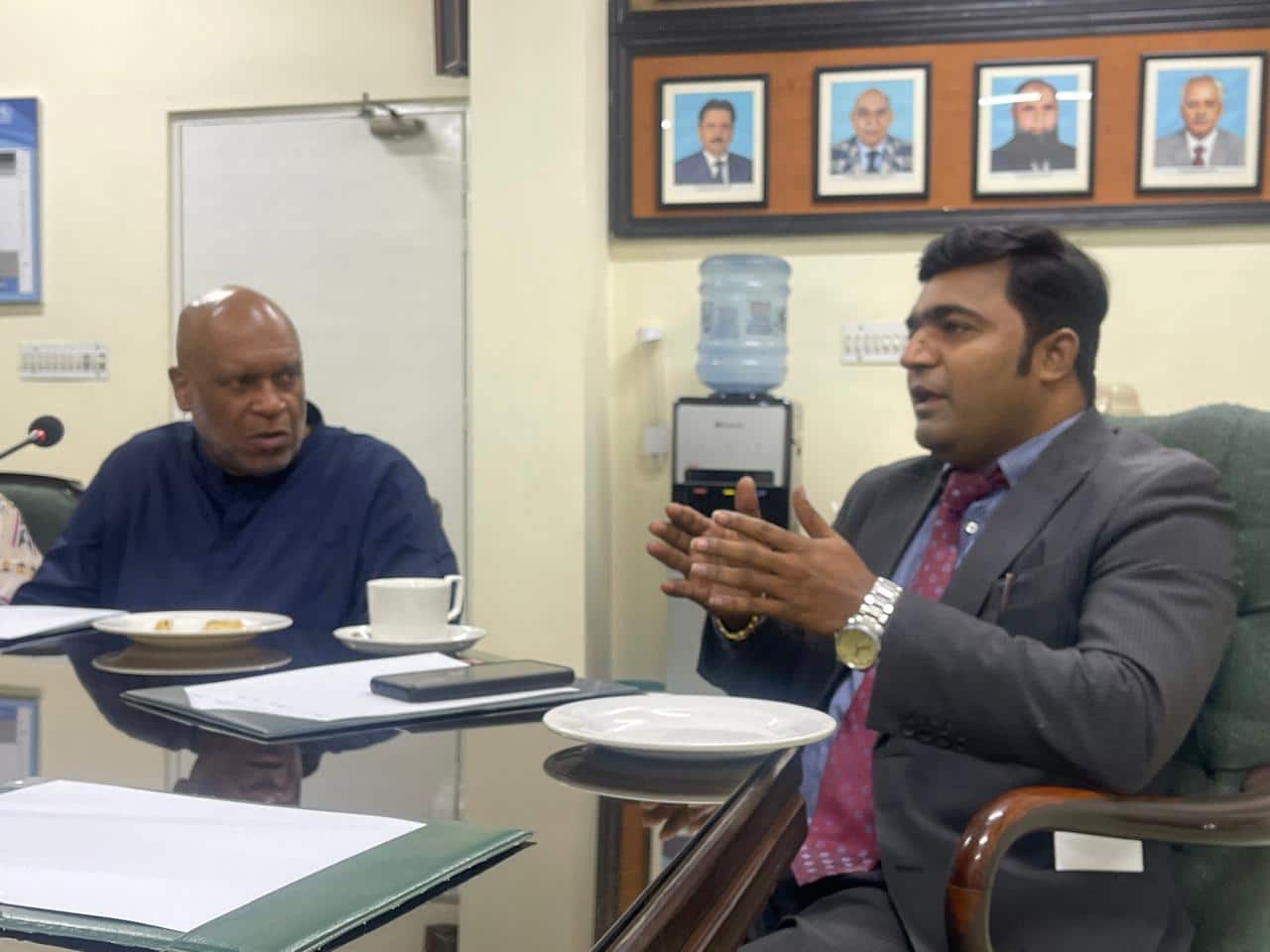
Green Urban Development and Water Management
On the trip, they visited the Pakistan Council of Research in Water Resources (PCRWR) headquarters in Islamabad to get a first-hand understanding of its work and activities. “The purpose of the visit was to explore opportunities for the exchange of ideas on how to promote innovative urban solutions through community engagement. Dr. Hifza Rasheed, Director General (Water Quality) gave an overview presentation about PCRWR research & development, innovations, and capacity-building initiatives.”

Faisal Ilyas values the meeting as informative, as they shared the national-level research results in the presentations. He shared his experience working with madrassas and mosques in Lahore while giving consultancy to the WWF Lahore office. The WWF planted more than 20 Conservation of Ablution Water systems in different madrassas and mosques and also planted recharge wells in Lahore city to uplift the waterbed a need of the hour.
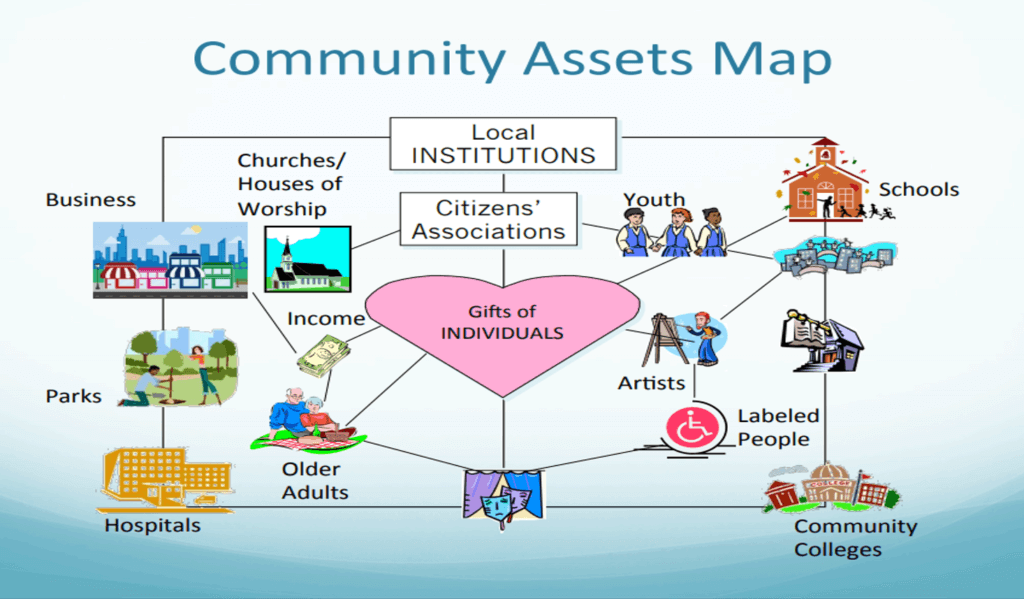
Utilizing Assets to Uplift Communities
Faisal, John, and Hiba also went to Haryali Hub – the Climate Action Project Site of the Pak Mission Society, a non-profit National Humanitarian and Development organization working for the unreached and marginalized communities to bring hope, dignity, respect, and share love through emergency relief efforts and deliver long-term rehabilitation and development programs. Ms. Ayesha Khalid Senior Program Coordinator at the Institute of Urbanism, led the guided tour to Haryali Hub, all shared their brief introductions and Mr. Sunil Gill shared the highlights of their work.
The staff at Pak Mission Society shared their Climate Action projects and some of their achievements. Later they helped us all to show their recycling and up-cycling techniques for reducing the pollution and supporting the organic adaptations. Staff members also presented souvenirs to all the guests.
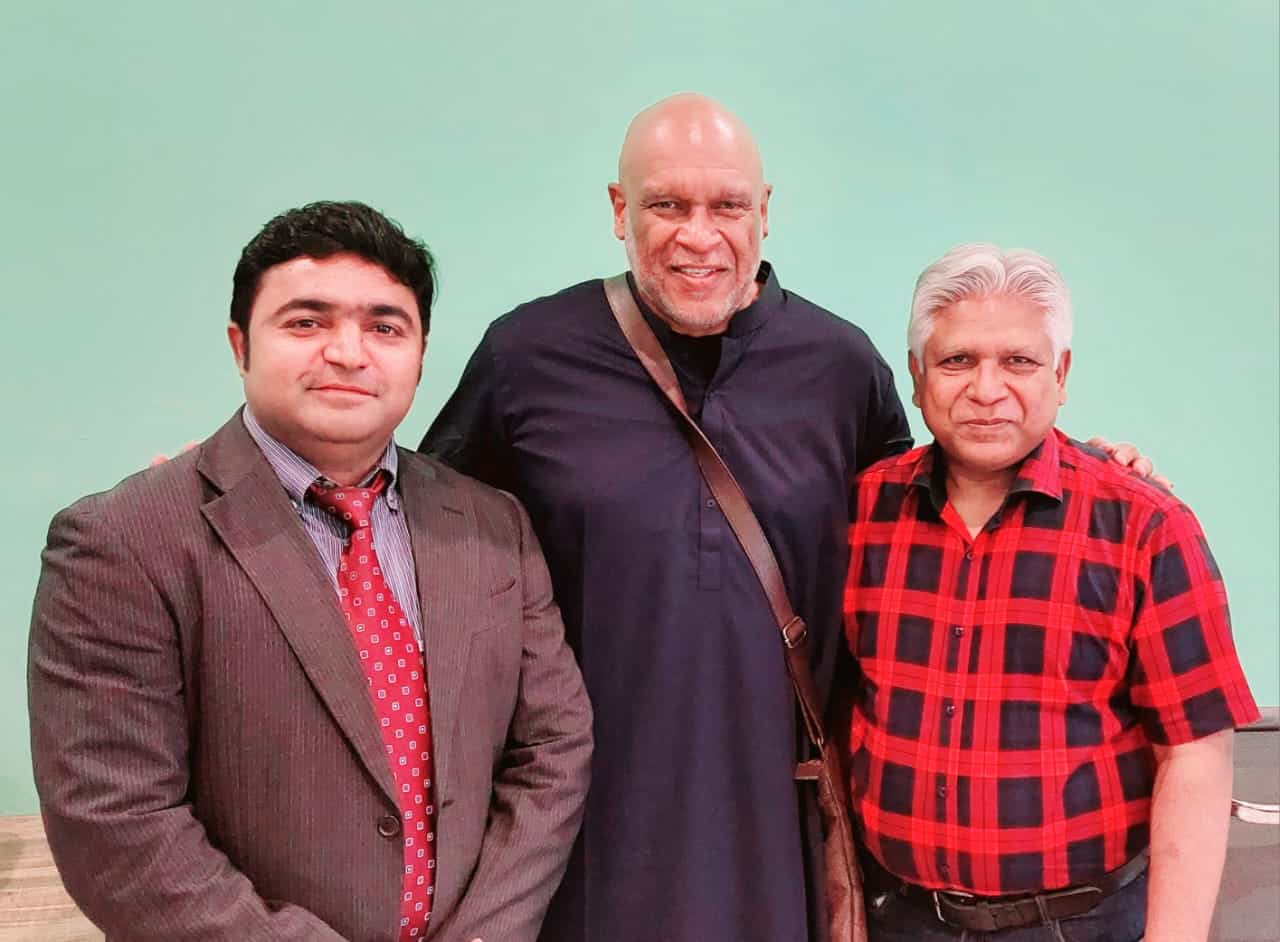
The visit concluded with a session on the Asset-Based Community Development Approach and Asset Mapping at the Superior University Lahore led by Hiba and Faisal. Students shared their project insights to uplift their communities. They learned to apply asset-based community development through mapping the vital assets of the respective community. We also describe the great work done by the Goldin Institute since 2018 by selecting Global Fellows and Chicago Peace Fellows at the GATHER Platform.“ Faisal Ilyas said, Mr. John Zeigler is an amazing leader and wonderful advisor. While sharing my work with him, he listened with great interest and encouraged me to keep helping people in need. I am truly thankful for his valuable time and lovely company.”
Justice for Two Boys Trafficked into Domestic and Commercial Servitude in Liberia
This piece explores the disturbing experience of two children in Liberia who were trafficked into domestic and commercial servitude. With the support of staff from the Citizens Bureau for Development and Productivity (where Fellow John Kamma is Founding CEO) and local community residents, the two children were rescued, supported and reunited with their families. The following article exemplifies the work done by Citizens Bureau for Development and Productivity and our mission of supporting justice and dispute resolution. To learn more about the work of the organization, visit our Facebook page.
------------------
How Two Boys Were Trafficked in Liberia
In a telephone conversation with her business acquaintance, Madam Tete Dole, Cynthia Wilson (a purported businesswomen) requested the help of two boys who she wanted to live with her to carry out domestic work. In exchange, she would take responsibility of their care, including their schooling. Acting upon the conversation, Madam Teta Dole went to Bong County (a region in the North-East of Liberia, a few hours from the capital Monrovia) and with deceit convinced the biological parents to allow the children to leave with her, promising them that the children would have better living conditions, including schooling, and they would be under her watchful eyes in Monrovia. She did not inform the parents that she was acting on behalf of Cynthia Wilson, who would be using the children for domestic and commercial purposes. Madam Tete Dole delivered the children to Cynthia Wilson in January 2022. From that day, the children were living with Madam Wilson without going to school, and instead had their time dedicated to selling and domestic work.
Community Intervention to Prevent Trafficking
Following a whole day of work by the children, on the evening of May 22, 2024 Cynthia Wilson ordered one of them – aged 11 – to take off his clothes before flogging him with a rattan with severe intensity, causing bruises and defecation. The child escaped from her and went into hiding behind a neighbour’s bathroom, as he did not know of anyone with whom he could seek refuge, knowing no one else in the community that may stand up for him. Whilst in hiding, a neighbour, Mr. Anthony Wesseh, noticed the child and brought him to the home of Mr. Rockson Wollor Sr, who works for the Citizens Bureau for Development and Productivity as Head Mediator for the Logan Town Community Justice Teams. Upon seeing the condition of the boy, some women within the community became extremely upset and disturbed and demanded justice for him. Mr. Rockson Wollor Sr and five other ladies took the child to the police station in Logan Town and Cynthia Wilson was arrested.

Cynthia Wilson is feared by many residents because she possesses economic power. At the police station, Madam Wilson informed the police that she flogged the kid for toileting in the shop and that it was an act of witchcraft and she acted to get the witch out of him. The child, for his part, admitted to this but stated it was to avoid leaving the shop unsupervised. Cynthia was placed behind bars in a police cell and was later taken to court where she was found guilty and remanded at the Monrovia Central Prison. Cynthia was charged for Child Trafficking, Child Labour and Domestic Violence. The child was taken to a medical clinic by the Citizens Bureau along with community members who voluntarily gave cash amounting to $3,800LD ($20US), for medical support and feeding while undergoing treatment at the home of the head mediator who is also a member of the community.
After many efforts, the two children were eventually reunited with their family members who came from Bong County; their families could not hold back their emotions and were crying upon seeing the children and hearing of the abuse imposed on them by a woman they had never known or met. And that this had been going on since January 2022 without their knowledge.
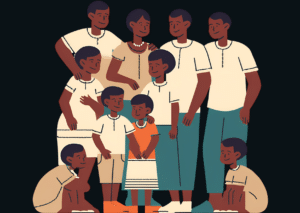
However, the families of the children were thankful enough that humanity provoked the kind and generous intervention of the community making it possible to reunite with their kids and to uncover all that they have gone through in the hands of Madam Wilson. The parents of the kids hailed from Bong County in a village called Bolee and lived there more than 50 years. In conclusion, the family of both kids expressed gratitude to the Citizens Bureau for Development and Productivity and the Jacket Community for standing up for their children against injustice and to finally give them justice and to reunite the family. That is how these children were rescued from forced labour and domestic violence.
Organizing for Reproductive Rights and Social Justice
Patricia Novick, 2023 Goldin Global Fellow, from Chicago, USA, has an extensive career in civil society and supporting human rights with a deep commitment to social justice, positive social change, and community building.
Patricia’s long career in social justice began in the 1960s when she worked directly with Martin Luther King Jr., taught the first course on women’s studies at a university in Chicago, was arrested more than 25 times for civil rights protests, and was a member of the Jane Collective, which provided abortion services. Having a rich background and engagement with the community, Patricia, who has doctorate degrees in Clinical Psychology and Ministry, joined the 2023 Goldin Global Fellowship to foster collaboration between activists and pave the way for communities to thrive.
Her efforts include supporting many Fellows to receive opportunities to participate in coaching and training programs at no cost that would otherwise have cost more than $3,000 and collaborating with the Midwest Academy to provide additional training in community organizing, specially designed for Goldin Fellows, at no cost. She values the relationships formed during the Fellowship and is glad to have enhanced her own network of international social change leaders.
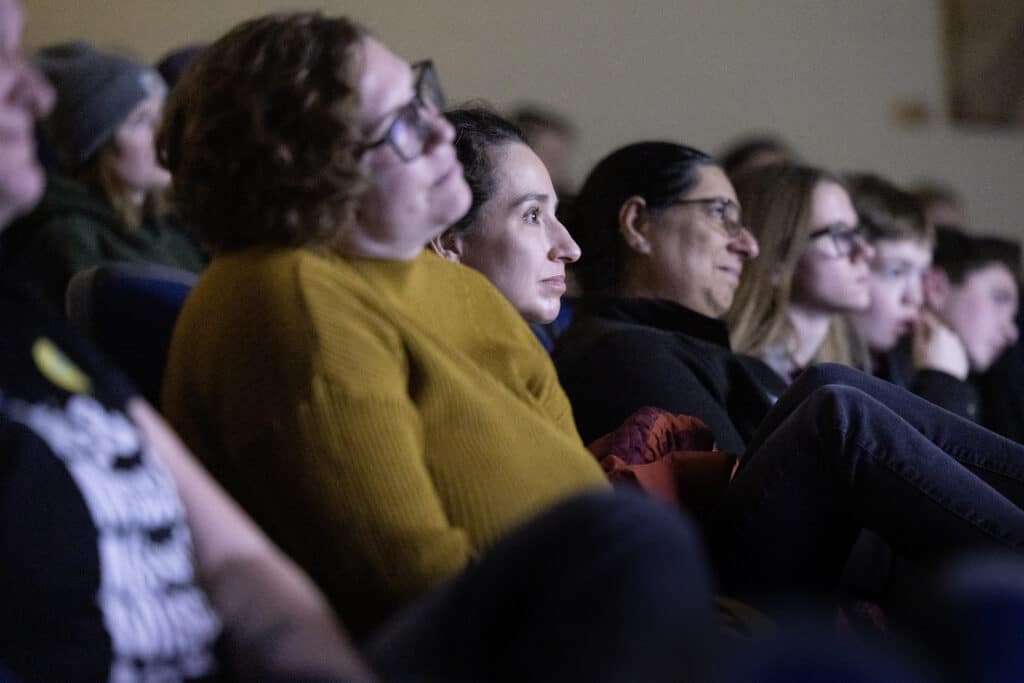
Organizing Around Reproductive Rights with the Goldin Global Fellowship
Patricia shared how she benefited from the Goldin Fellowship and the weekly roundtables that brought together Fellows as grassroots leaders from around the world to work together: “I did the Fellowship to support international social change leaders: this is why I wanted to be a Goldin Fellow, to interact with and support the other Fellows.”
According to her, the quality of the relationships created between Fellows will long remain: “What I got from the Goldin Global Fellowship is the quality of the relationships with those I met, and I will maintain these connections over time. I was a bit older than the other Fellows; nevertheless, what they had to offer me was invaluable. I want to highlight that what was most valuable, in addition to the excellent training we received, was who I met and who I will continue to have in my life. I was very moved by the work that many of the Fellows are doing, and by who they are as people.”As part of the Fellowship, she hosted a series of events in Maine, to raise awareness and action for women’s reproductive rights. In addition to meeting in classrooms with students in gender and women’s studies, and having lunches with legislators and other influential leaders, she gave talks that were open to the public at five universities, with audiences of as many as 200 people per university.
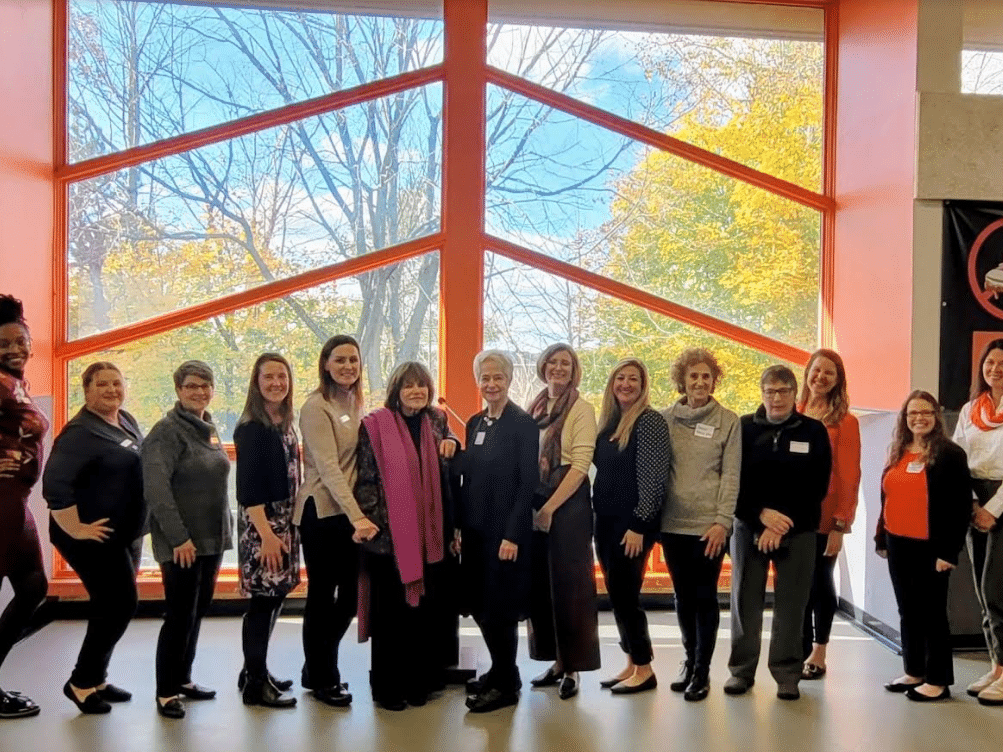
At the public gatherings, an award-winning documentary film about the Jane Collective was shown. Patricia comments on the importance of this documentary: “In this country, reproductive rights together with other issues, like climate change and gay rights, are an important cluster [...]. Hence, the purpose of my summit was to use the Janes film to bring together those organizations. In the lobby were representatives of all these organizations. The idea was to encourage participation and voting. The purpose of the summit was to bring together people who are committed to these issues, to have them sign up to volunteer to work on these issues in preparation for the national election.” She continues, “If we organize, we can change the world. So, I am calling upon you to volunteer on the issues that matter to you and all of our futures.”
In addition to Maine, she also participated in screenings of the documentary in Arizona, Indiana, Nevada, Wisconsin, and Georgia. She also arranged for the film to be available to all Goldin Global Fellows for viewing with groups in their communities, outside the USA, and hosting discussions afterward. She emphasizes the community support she received about the US screenings: “We got letters and emails, and the feedback was very positive.”
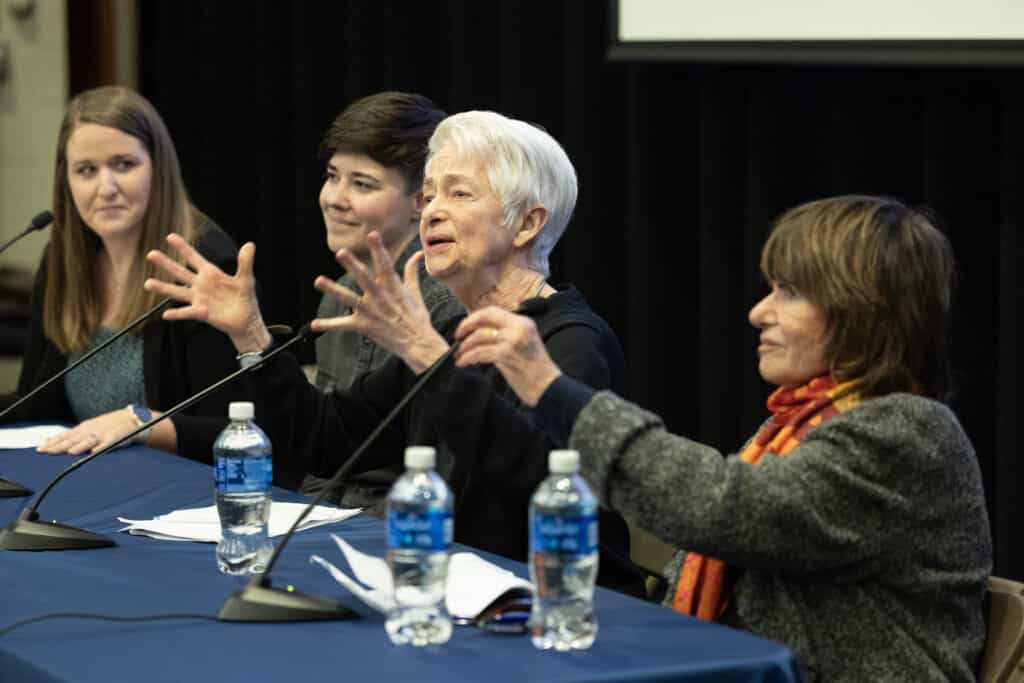
Patricia’s Contribution to the Community in Dealing with the Migration Crisis
An important way that she is helping her community is by giving her assistance in dealing with the migration crisis. She explains why this is important and timely: “My city, Chicago, is the most segregated in the country. It is a mosaic of communities that touch but do not integrate. Last year and this year, some US states sent more than 20,000 immigrants seeking asylum to Chicago. The large number of migrants suddenly coming to our city creates a disturbance in the systems of these close communities.”
Her work includes serving Latinos, organizing dinners to build better relationships among Latino and African-American communities, and organizing and co-leading a program to bring together African-American and Latino leaders to create joint civic projects. As an ordained minister, she also works through churches. “The goal through the church is to get people placed in other people’s homes and to provide resources like food and shelter, medical care, schooling for the kids, and all the basic resources,” she said.
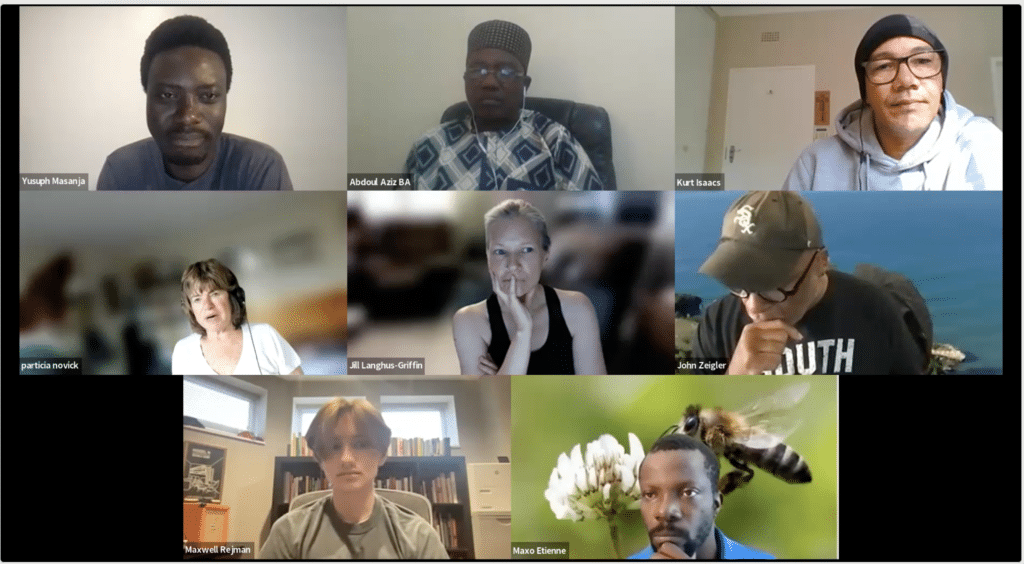
She adds that what’s currently happening in Chicago is that the institutional response to the migration crisis is not always the most appropriate: “They [responsible institutions] spent all this money to build a tent camp, and the environment is not acceptable, nor is the quality of the ground. Currently, we don’t have enough places for the asylum seekers to live, so many of them are living in police stations and tents.” Patricia aims to change this for the better, while tirelessly putting her effort into the betterment of the community in Chicago through social change and organizing.
You can watch Patricia in the HBO documentary, “The Janes”.
Chairs as Activist Art
Throughout the history of the Goldin Institute, many Peace Fellows have used art as a way to bring communities together, reflect, and create. Jamika Smith, a 2022 Chicago Peace Fellow and the founder of Teena’s Legacy, uses a unique medium to promote these kinds of practices, teaching the art of upholstery as a tool for healing and community activism. Recently, Jamika has worked on two substantial projects, collaborating with community members from the Black and Latino community to use re-upholstery as a tool to explore their history and facilitate healing.
Chairs that Explore Black History: Blooming Out of Trauma
For Black History Month, Teena’s Legacy hosted their very first art exhibit, “Blooming Out of Trauma: The Intersection of Upholstery and Activist Art.” The exhibit was hosted at the Marshall J. Gardner Center for the Arts in Gary, Indiana from February 2 through March 8. For this exhibit, Jamika worked collaboratively with community artists to create fourteen works that trace a peoples’ history from the African Empire and slave trade, through Jim Crow and Civil rights eras, to contemporary experiences. Speaking to the collaborative nature of the exhibit, Jamika stated: “I intentionally wanted this to be a collaborative project, so I [brought in] a couple of artists from Chicago, an artist from Hammond, Indiana, and a majority of artists from Gary.”
Blooming Out of Trauma aimed to capture both the struggles and achievements of African and Black History. Speaking to her inspiration for the exhibit, Jamika said: “A lot of my chairs, especially when I do my workshops, are more about purpose driven pieces, designed with intention. This exhibit is what that is, I intentionally designed an exhibit to tell the story of African and Black history using some authentic cloth from Ghana and Mali. The story starts from the birth of slavery in the 1400s all the way up to the present day. The name ‘Blooming out of Trauma’ captures that for well over 400 years there were traumas and struggles, yet there were also triumphs out of those.” Through working with African materials and reflecting on African and Black history, the artists who contributed to Blooming Out of Trauma created chairs that provide a space to process that history.
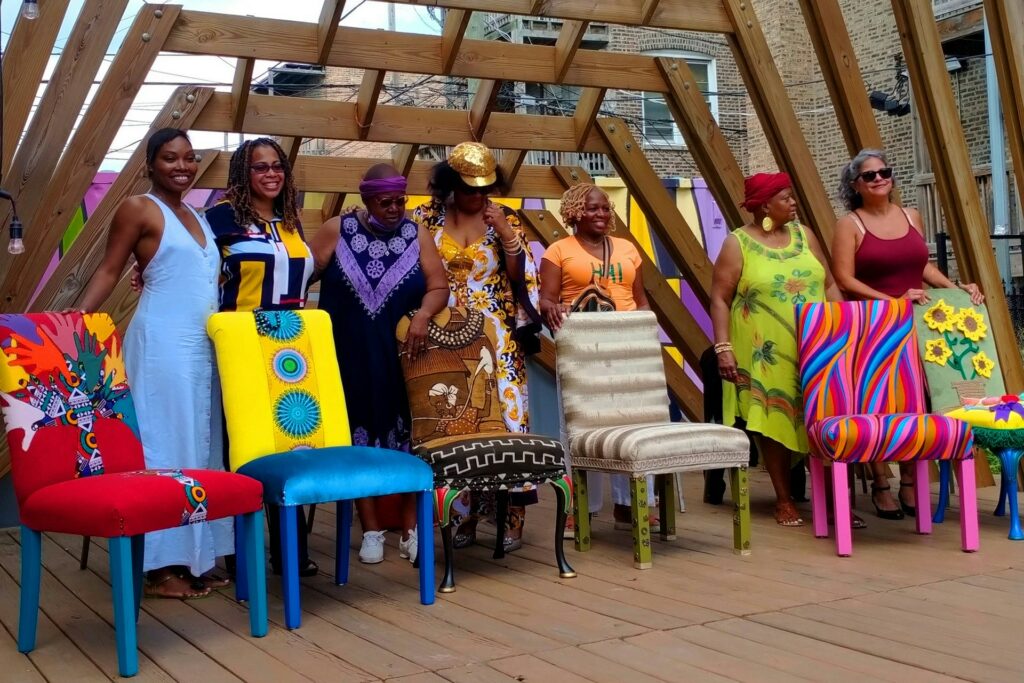
As Jamika and the other artists worked on chairs for Blooming Out of Trauma, they also processed their own personal histories. Jamika elaborates, “I learned more about my history through this project, especially the history that is not taught in schools or books. Even history that our ancestors or family members may have been uncomfortable or ashamed to tell. That history is hidden.” Continuing to reflect, Jamika stated that upholstery teaches: “First, to have patience to assess that there is trauma, and then second to identify and put a name to that trauma, and third, how do you compartmentalize or release that trauma; how do you put it in its proper place.” Through reflecting on personal histories and struggles, Blooming Out of Trauma seeks to allow a space for trauma to be processed.
The way Jamika approaches upholstery centers the experience of individuals and upholstery’s role in connecting groups of people through their experiences. Speaking to the collaborative nature of her work, she says, “It is so much better doing stuff with other people and not solo. You get to learn so much more about individuals’ personalities, passions, desires. When it comes to art, you also learn about their struggles and challenges when it comes to monetizing their art and how challenging it can be to connect their art to the mainstream.” For Jamika, upholstery is a reflective process: “Upholstery can be tedious work, especially since you work with your hands, so students tend to get frustrated through the process, just to come out of the process with a better understanding of who they are as individuals. If you’re impatient with this chair, where else are you impatient? Are you impatient with your health, finances, etc.” Through the process of upholstery, individuals come to a greater understanding of themselves, their history, and their community that can be shared through works of art.
Exploring Assets in the Latino Community: A Seat at the Table
Jamika has also partnered with the Illinois Legislative Latino Caucus Foundation, where she worked with 17 artists from community areas represented by members of the Illinois Legislative Latino Caucus to create chairs representing their community areas on a project called “A Seat at the Table.”. For this project, Jamika joined with Dr. Patricia Novick, a 2023 Goldin Global Fellow, who guided the artists through an Asset Based Community Development training, while Jamika hosted workshops walking the artists through the process of designing and creating a chair that tells the story of their district. Afterwards, the chairs were auctioned at the ILLCF’s annual gala, where $1 million was ultimately raised for their scholarship program.
Artists in the workshop came from multiple generations and represented multiple community areas, but came together to imagine ways in which their communities could be represented through chairs. Jamika emphasized the way the artists were able to join together as a community: “17 artists went into the workshop without really knowing each other that well. And it was an intergenerational group from 16 years old to 65. […] The idea was that even though they did not know each other, they all came into this one space as if they were family.“ Each artist was also allowed their own voice and aimed to capture something about their community. Jamika continued: “Each Chair had a foundation of community, but it was told in 17 different ways. That was the most powerful part about it: it was about community, building, and collaboration, but each one of them had their own separate voice in displaying what it meant for them.”
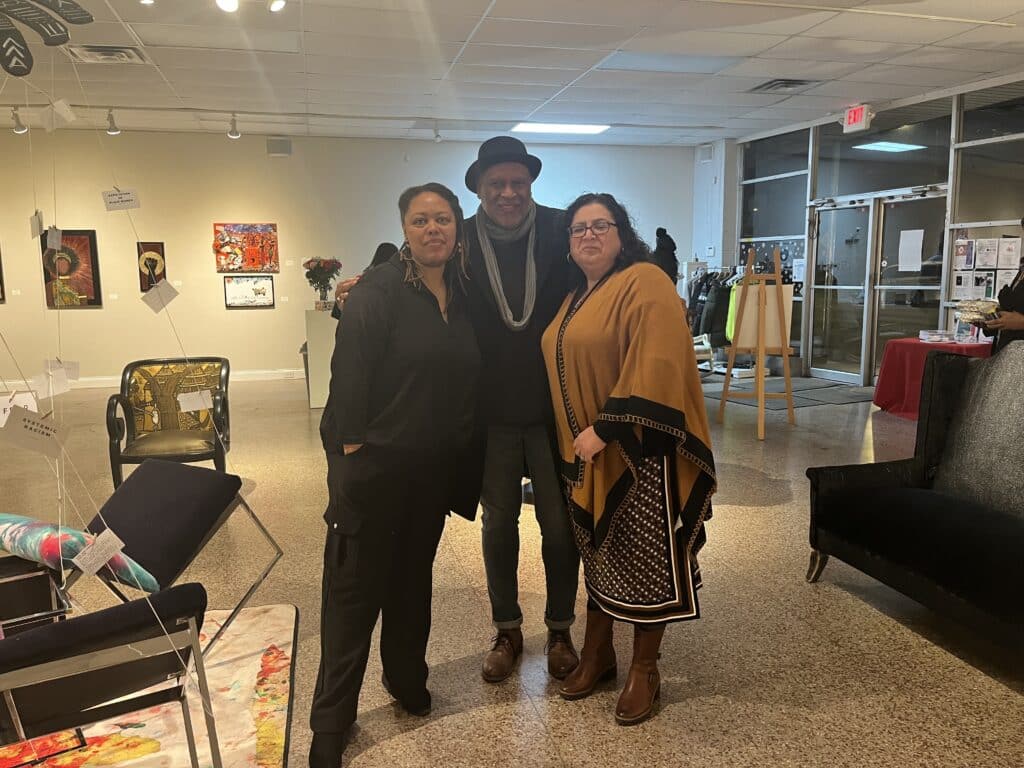
The artists who worked on a Seat at the Table aimed to showcase a variety of Latino experiences that depict a rich culture. Madison Cervantes, created a chair representing the first senate district and notes: “The butterflies I put on my chair represent all of the immigrants within the 1st district. I wanted to use different materials for their symbolic meaning. Latinos, we are everywhere and we know how to use many different materials and we venture out and I just wanted to represent that we are not linear people.” Silvia Morales created a chair for the 23rd congressional district that incorporates items from vendors in her community: “I wanted to include a lot of aspects of our community as hard workers, but also as people, people who need to rest.” Through reflecting on these chairs, both the artists and community members are asked not only to think of the Latino community, but also assets within that community that can be used to build strength.
This year, Jakima hopes to launch another project similar to A Seat at the Table and collaborate with organizations across Chicago. She imagines creating Peace Circles, identifying topics, and addressing current issues to guide upholstery workshops. As seen through both Blooming Out of Trauma and A Seat at the Table, these workshops would provide spaces for artists to work with their communities to explore their histories, identities, and assets.
Transforming Adversity into Activism: Violence Prevention in Garfield Park
Damien Morris, 2020 Chicago Peace Fellow and Chief Program Officer at Breakthrough Ministries, an organization providing comprehensive programs in Garfield Park in Chicago, speaks about his long-standing engagement with one of the organizations’ key programs: violence prevention. Being incarcerated at the age of 17 for a decade provides him a lived experience with the justice system, and equips him with the knowledge and know-how in creating transformational and lasting change towards a more just society.
In this piece, Damien highlights the importance of being involved with Breakthrough Ministries and serving as his platform for helping others get second chances. He emphasizes the high crime rate in East Garfield Park, and discusses his involvement in violence prevention through the Flatlining Violence Inspires Peace program, and reiterates the crucial role of community involvement in violence protection.
A Personal Adversity Transformed into a Community Activism
Damien feels strongly about people deserving second chances in being part of the community. Reflecting on his own experience, he says: “I have lived experience. I was once involved with the justice system at the age of 17. After my release at the age of 27, I got a second chance, I got an opportunity to redeem myself by working with Breakthrough Ministries.” He has been with the organization for more than 15 years now. “What keeps me going is that I know what happens and I know the good results that come with supporting a person.” he adds.
Take me for example, I was incarcerated for ten years, and then I was released. I was in a program, they gave me an internship and after I proved myself they offered me a job- and I never looked back. […] Now I am in a position to give people opportunities for a second chance.
- Damien Morris
Reducing Violence in Garfield Park with Community Involvement
Damien further explains why Garfield Park on the West Side of Chicago needs the resources to create deep, holistic change in the neighborhood in preventing violence: “The crime rate [in Garfield Park] is 55 people per one hundred thousand, and so with this being said the community has been begging for violence prevention efforts, and the Breakthrough became the leading agency on that.”
Violence has touched nearly every person in this area, directly or indirectly, and people like Damien, who is close to the issue are leading social change from the bottom. “Despite having a lived experience, I also made a conscious decision to help with this. Now together with my team, we have identified nine areas within the East Garfield Park that are being charged with increasing the violence in this part.” He elaborates more on a unique program that Breakthrough is implementing called Flatlining Violence Inspires Peace (FLIP).
FLIP leverages the influence of community residents by partnering with young men and women who live in neighborhoods that are at a high risk for violence. These individuals are given a stipend to act as peacekeepers and mediate conflict in their communities: “This program allows me to identify those men and women who are connected to the streets and have a good relationship with the community but also have the mindset that they want to see a better community and reduction of violence.”
In this piece published in the Chicago Tribune, Damien calls for the involvement of the community in violence prevention: “People can help us by simply just showing initiative when they see us out doing work. There’s not solely one answer to solving or reducing violence, so we cannot just wait for the police to reduce the violence. It takes all of us- we all need to get involved and be on the same page. We all need to get engaged consistently.”
“When we are hosting community meetings, come, help, and share your doubts, share your creativity. Help us think outside the box, help us make a greater impact. We cannot do it all ourselves,” he continues, "The community needs to govern themselves."
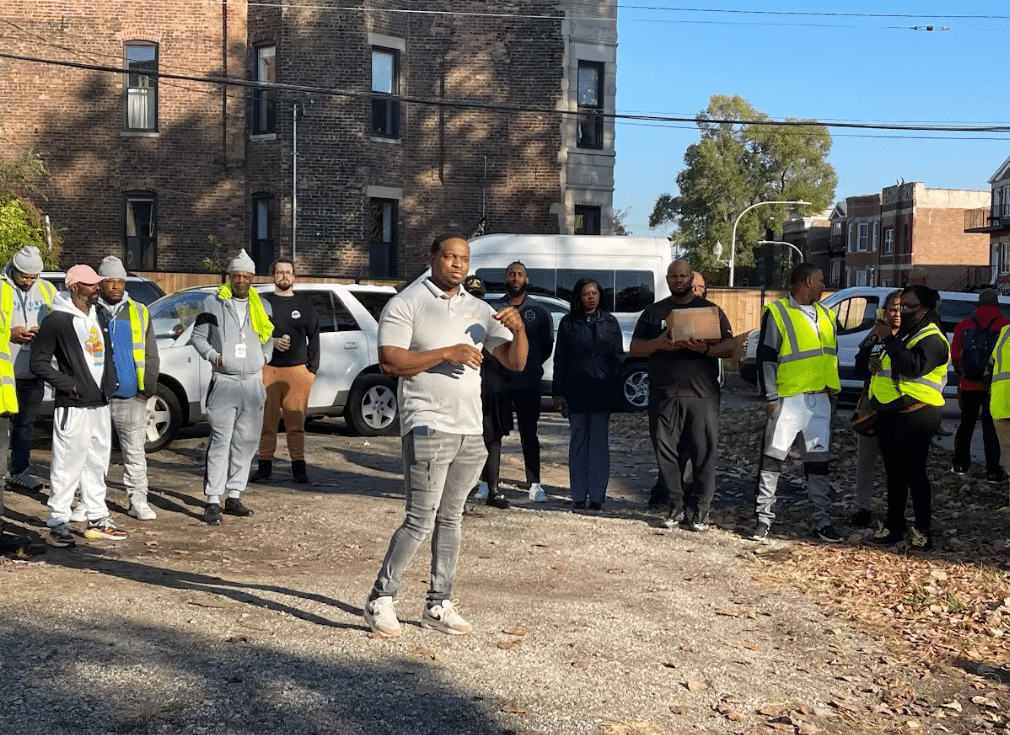
The Value of Community Assets
Damien’s participation in the Chicago Peace Fellowship, in 2020, remains important in his activism. “I was referred to the Goldin Institute and I have seen it as a challenge, I have seen it as a way for me to see outside the box, and to challenge who I am as a leader,” he says.
He learned tremendously from this experience, and Asset Based Community Development (ABCD) and asset mapping stand out. “I gravitated to these two exercises. Indeed, I started a little company due to the impact and learnings from the asset mapping approach. I identified those who are an asset to the community and engaged with them to provide the services we are experts in. I still do that to this day.”
Breakthrough Ministries served more than four hundred people, 48 individuals served with case management services and the percentage of drop in shooting victimizations in East Garfield Park last year was 29%.
You can donate to Breakthrough Ministries here.
